2026 DNP Intensive Speakers
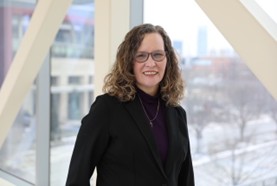
Susan Bedwell DNP, APRN, CCNS-N
Dr. Susan Bedwell is the Director of Quality Improvement for the Neonatal-Perinatal Section in the Department of Pediatrics at Oklahoma Children’s Hospital and holds a joint appointment as Assistant Professor at the University of Oklahoma Fran and Earl Ziegler College of Nursing. In this role, she leads interdisciplinary initiatives that have reduced morbidities and mortality in the neonatal population by advancing evidence-based practice and quality improvement strategies. Over her 35-year career, she has directed projects addressing NICU admissions, neonatal feeding practices, and prevention of adverse outcomes in preterm infants. She has presented her work at more than 40 national and international conferences and published widely on neonatal quality and safety, while preparing the next generation of Clinical Nurse Specialists through her academic role.
Amy Bigham, DNP, RN, FNP-BC, COI
Dr. Bigham is an accomplished nursing professional with over two decades of experience in academia and clinical practice. She holds a DNP and is certified as a Family Nurse Practitioner and Online Instructor. In academia, she has coordinated family and emergency nurse practitioner programs and currently leads the Master’s Entry into Professional Nursing Program at the University of Alabama Capstone College of Nursing. Her leadership extends to professional organizations, including service as President of the Nurse Practitioner Alliance of Alabama and the Alabama League for Nursing, where she has advanced education and practice initiatives statewide. Clinically, Dr. Bigham has practiced in emergency departments, and rural health clinics. She is a published author on environmental emergencies, interprofessional education, and nursing practice innovation. Actively engaged in professional service, she serves on university committees and has presented extensively at international, national, regional, and state conferences. Her career reflects a sustained commitment to preparing future nurses, promoting interprofessional collaboration, and improving healthcare outcomes through education.
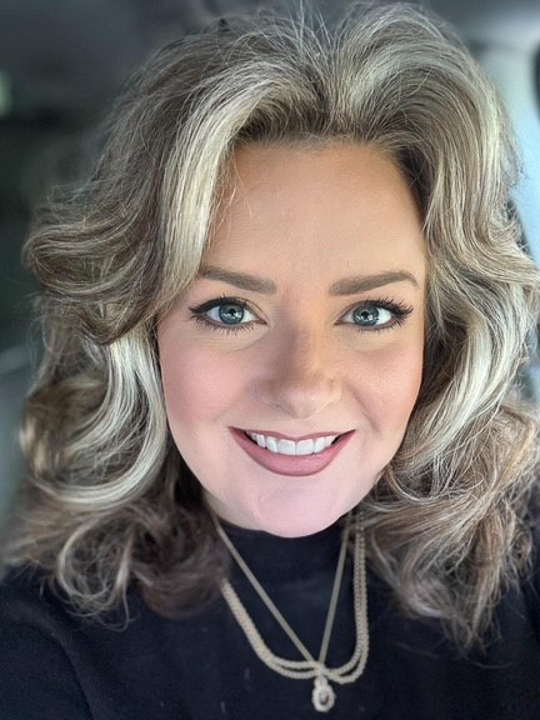
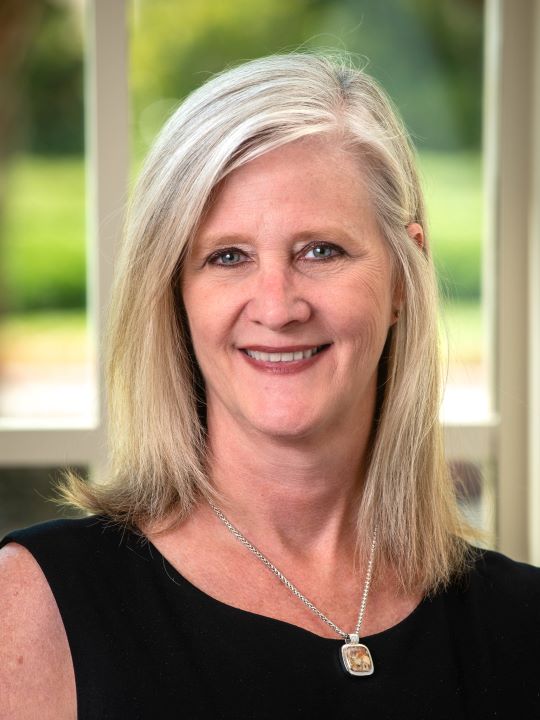
Amy S. D. Lee, DNP, ARNP, WHNP-BC, FAAN, FNPWH
Dr. Amy (Davis) Lee received her BSN from the Capstone College of Nursing in 1990. She worked as a labor-and-delivery, recovery, post-partum nurse at UAB in Birmingham, West Florida Regional Medical Center in Pensacola, and Castle Hospital in Hawaii. She received her MS as an Advanced Practice Nurse from the University of Hawaii at Manoa in 1995 and became board certified through NCC in 1996. Dr. Lee has worked as a Nurse Practitioner in California, Louisiana, Texas, Maryland, and Alabama. From 2002 until 2018, Dr. Lee was at the Johns Hopkins Hospital in Baltimore, Maryland, in both the inpatient and outpatient settings with a primary job assignment to support the education of the gynecology/obstetric residents. She also had a joint appointment at the Johns Hopkins School of Nursing and represented the department of GYN/OB on the Central Nursing Research committee. She has consulted on gynecologic issues across the hospital; provided care for patients in outpatient clinics; served as a First Assist in the gynecologic operating rooms; and taught residents, nurse practitioner students, and medical students through their clinical learning experiences. In 2013, she completed her DNP at Chatham University in Pittsburgh, Pennsylvania with a DNP project that focused on contraceptive education to improve contraceptive compliance. Dr. Lee returned to her home state of Alabama and the Capstone College of Nursing in 2018. She has taught in undergraduate and graduate programs while currently serving as the Senior Associate Dean of Academic Affairs. She maintains a clinical faculty practice at the University of Alabama Student Health Center and Pharmacy. Dr. Lee’s research and clinical interests have focused on family planning, gynecologic emergencies, and intimate partner violence. Her publications, presentations, and work in these areas demonstrate her expertise and passion for these areas of healthcare. She is a member of Sigma Theta Tau International affiliated with both Epsilon Omega (CCN) and Chi Zeta (Chatham) chapters.
Krista Niedermeier, DNP, CRNA, NE-BC, FAANA
Dr. Krista Niedermeier is the Director of Anesthesia at Children’s of Alabama and has been a CRNA for nearly 20 years. She is a past president of the Alabama Association of Nurse Anesthetists (ALANA) and currently serves as the State Political Director and chair of the ALANA Foundation. She received the UAB Nurse Anesthesia Career Achievement Award in 2023 and was recently inducted as a Fellow of the American Association of Nurse Anesthesiologists. Dr. Niedermeier also serves as an adjunct instructor in the University of Alabama Capstone College of Nursing.
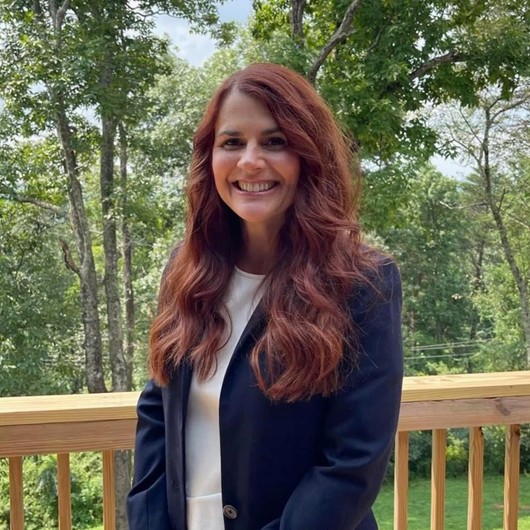
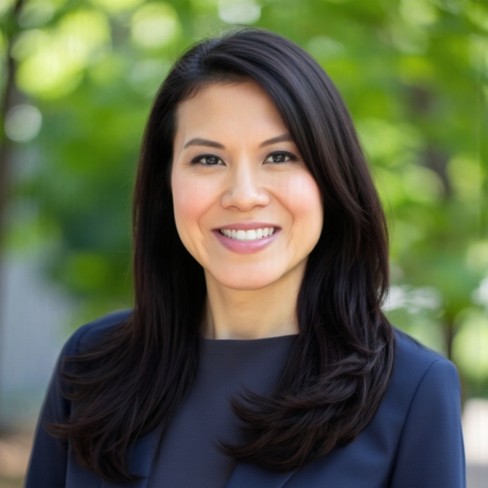
Komkwuan P. Paruchabutr FNP-BC, CNM, WHNP-BC, FACNM, FNAP, FAAN
Dr. Komkwuan “Kwuan” Paruchabutr, DNP, FNP-BC, WHNP-BC, CNM, FACNM, FNAP, FAAN, is an Assistant Professor in the Nurse-Midwifery and Women’s Health Nurse Practitioner Programs at Georgetown University’s Berkley School of Nursing. A triple board-certified advanced practice nurse with more than two decades of clinical and academic experience, she is the Immediate Past President of the National Association of Nurse Practitioners in Women’s Health (NPWH). Dr. Paruchabutr is a Fellow of the American College of Nurse-Midwives (FACNM), Fellow of the National Academies of Practice (FNAP), and Fellow of the American Academy of Nursing (FAAN), and is nationally recognized for her leadership in women’s health, advanced practice nursing education, and health policy and advocacy.
Suzanne Prevost, PhD, RN, FAAN
Dr. Suzanne Prevost served as Dean of the Capstone College of Nursing from 2013-2023. In 2023, she voluntarily transitioned to a tenured professor role at CCN. She currently teaches in the DNP and PhD programs. Previously, she was associate dean at the University of Kentucky, and the Endowed Chair in Gerontological Nursing at Middle Tennessee State University. From 1993-1998, she was the Director of Nursing Education and Research at the University of Texas Medical Branch. Earlier in her career, she worked as a Clinical Nurse Specialist and a traveling critical care staff nurse. From 2011-2013, Dr. Prevost served as the International President of Sigma Theta Tau. Dr. Prevost received her BSN at Villa Maria College in Pennsylvania, her MSN at the Medical University of South Carolina, and her PhD at Texas Woman’s University. She has completed a Hartford Postdoctoral Fellowship, and the Robert Wood Johnson Nurse Executive Fellowship. She served as the editor of the journal Critical Care Nursing Clinics of North America from 2002-2007, and editor of Nursing Clinics of North America from 2007 to 2012, and she currently serves on the editorial board of the Journal of Nursing Scholarship.
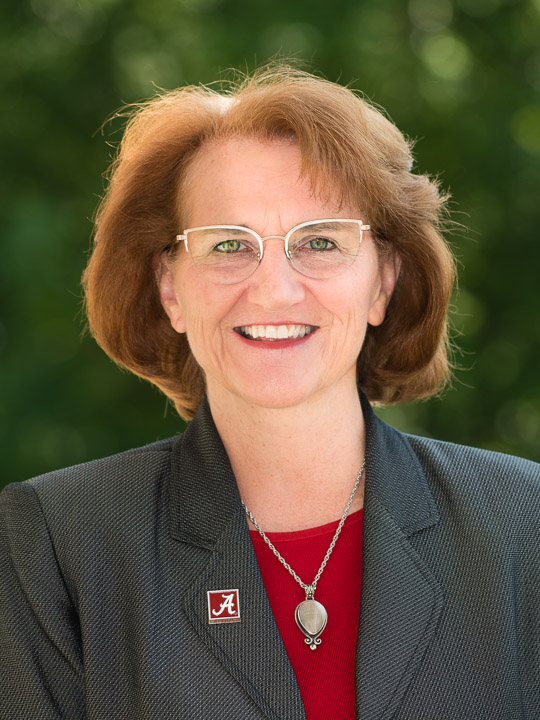
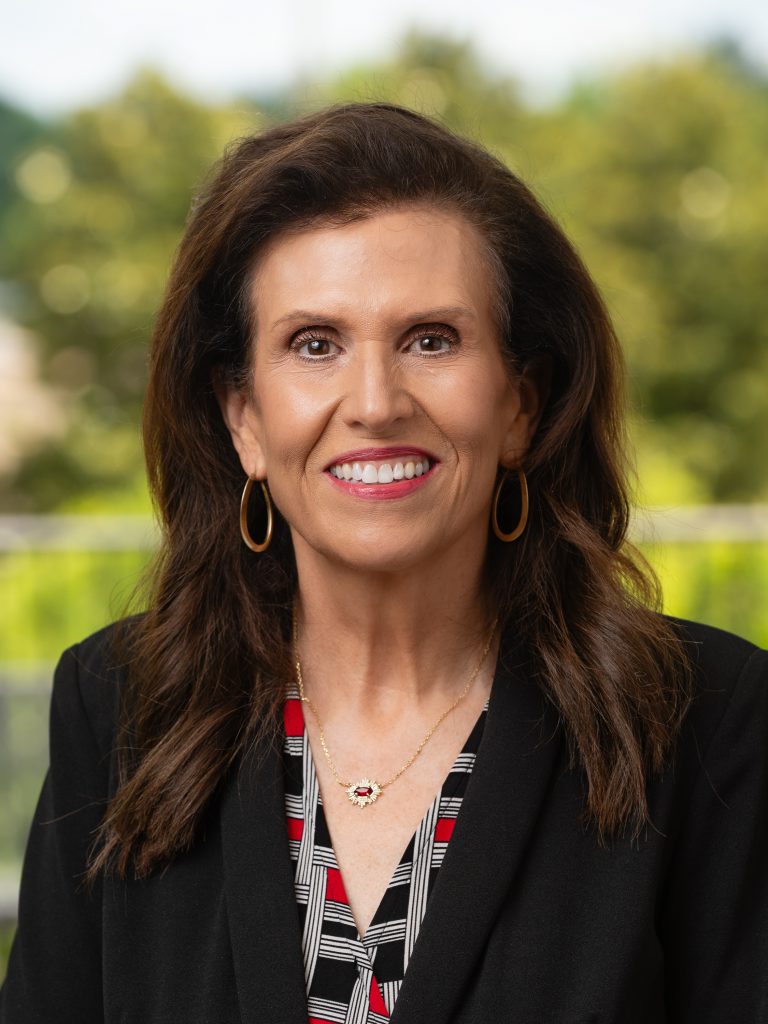
Julie Sanford, PhD, RN, FAAN, ANEF
Julie Sanford, PhD, RN, ANEF, FAAN, serves as dean and professor at The University of Alabama Capstone College of Nursing, and is the chair-elect for the American Association of Colleges of Nursing. Dr. Sanford formerly served as dean and professor of the University of Mississippi Medical Center School of Nursing and as director of the school of nursing at James Madison University in Virginia. Her distinguished career in nursing education has included leadership and teaching roles at the University of South Alabama, University of Southern Mississippi, and Spring Hill College. She has secured more than $13 million in federal and foundation funding to increase access to nursing education for populations living in rural areas of Alabama, Mississippi, and Virginia. In 2018, she presented testimony before the U.S. Senate Committee on Health, Education, Labor and Pensions to advocate for Title VIII Nursing Workforce Development funding. For AACN, she has previously served on the Board of Directors as secretary and member at-large; on the Nominating and Government Affairs Committees; as chair of the Baccalaureate Education Conference Planning Committee; as a State Grassroots Liaison; as a CCNE team leader; as a member of the CCNE Report Review Committee; and as a mentor in the New Dean Mentoring program. She is a graduate of the AACN-Wharton Executive Leadership Program.
Teresa D. Welch, EdD MSN, RN, NEA-BC
Dr. Welch currently serves as the Program Coordinator for the Master of Science in Nursing (MSN) Nurse Executive Program and holds the rank of Associate Professor at the Capstone College of Nursing (CCN). She joined CCN in January 2016, bringing with her over two decades of leadership and management experience in nursing, and a total of thirty years of clinical expertise in critical care and emergency department settings. Drawing upon her extensive background in nursing leadership, Dr. Welch’s scholarly work focuses on leadership science and the advancement of nursing leadership within healthcare systems. As an innovative leader and recognized change agent, she has successfully developed and led high-performing interdisciplinary teams. Under her leadership, she consistently maintained top-performing units that consistently exceeded organizational benchmarks in employee satisfaction and patient care quality. Her key contributions include the implementation of a rapid response program (SWAT), the restructuring of the Code Blue process to align with evidence-based best practices, and the establishment of the Peripherally Inserted Central Catheter (PICC) team and the Continuous Renal Replacement Therapy (CRRT) program for critical care.

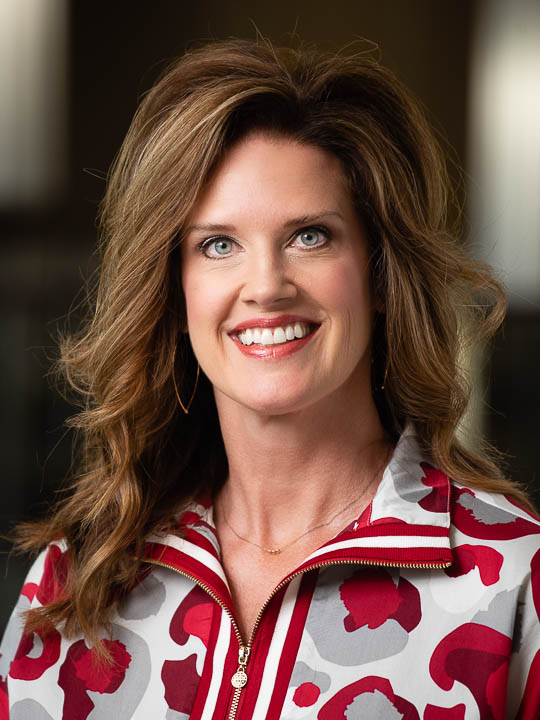
Kimberly Wilson, DNP, CRNP, FNP-C
Dr. Kimberly Wilson joined the Capstone College of Nursing as a Clinical Assistant Professor in 2019. She graduated with a Doctorate in Nursing Practice with an Academic Nurse Educator Concentration from Samford University and practices as a family nurse practitioner in a local family practice setting where she specializes in wellness and weight management. Currently, she teaches in the Family Nurse Practitioner graduate program and advises DNP students. In 2023, Dr. Wilson was the recipient of the Outstanding Faculty Practice Award here at the Capstone College of Nursing which recognizes exemplary and meritorious faculty practice achievements. She is also the recipient of the 2025 Nurse Practitioner Alliance of Alabama Most Outstanding Faculty Award and the 2023 Excellence in Academic Advising from the University of Alabama Office of Academic Affairs and Academic Advisors Association.





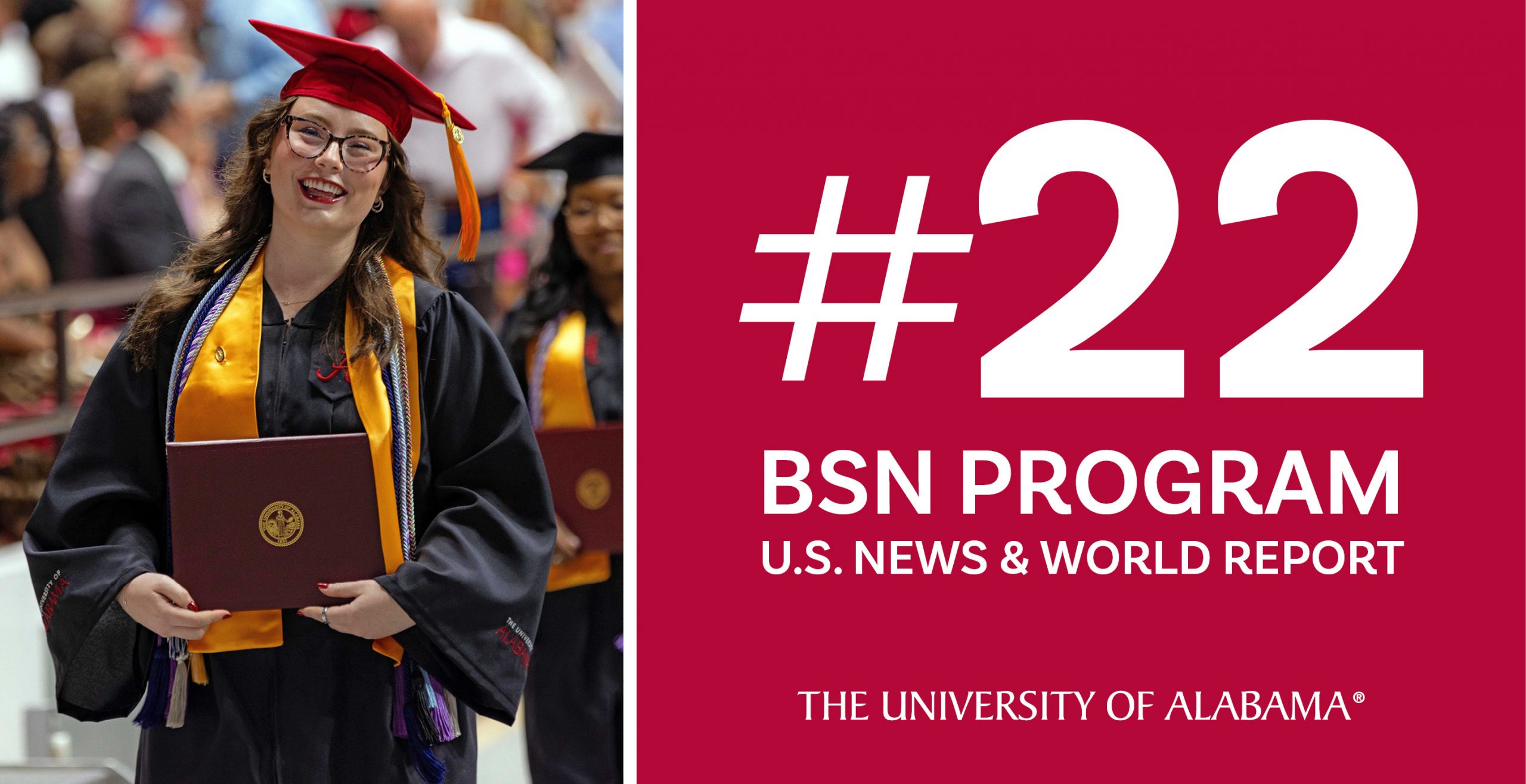
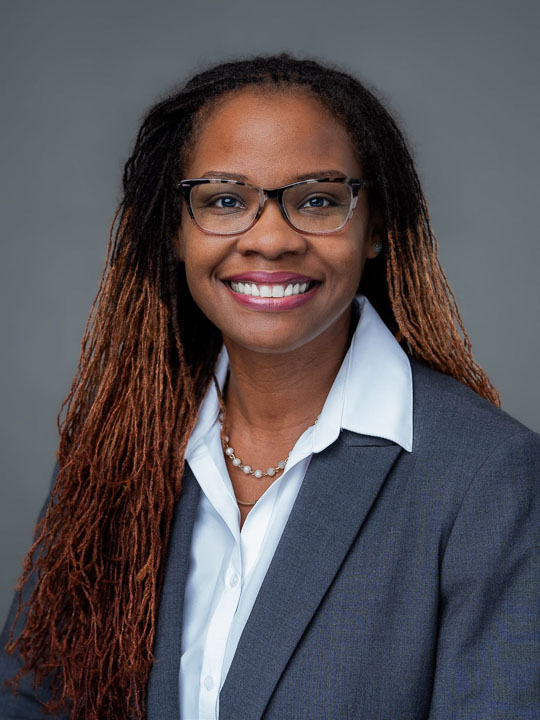
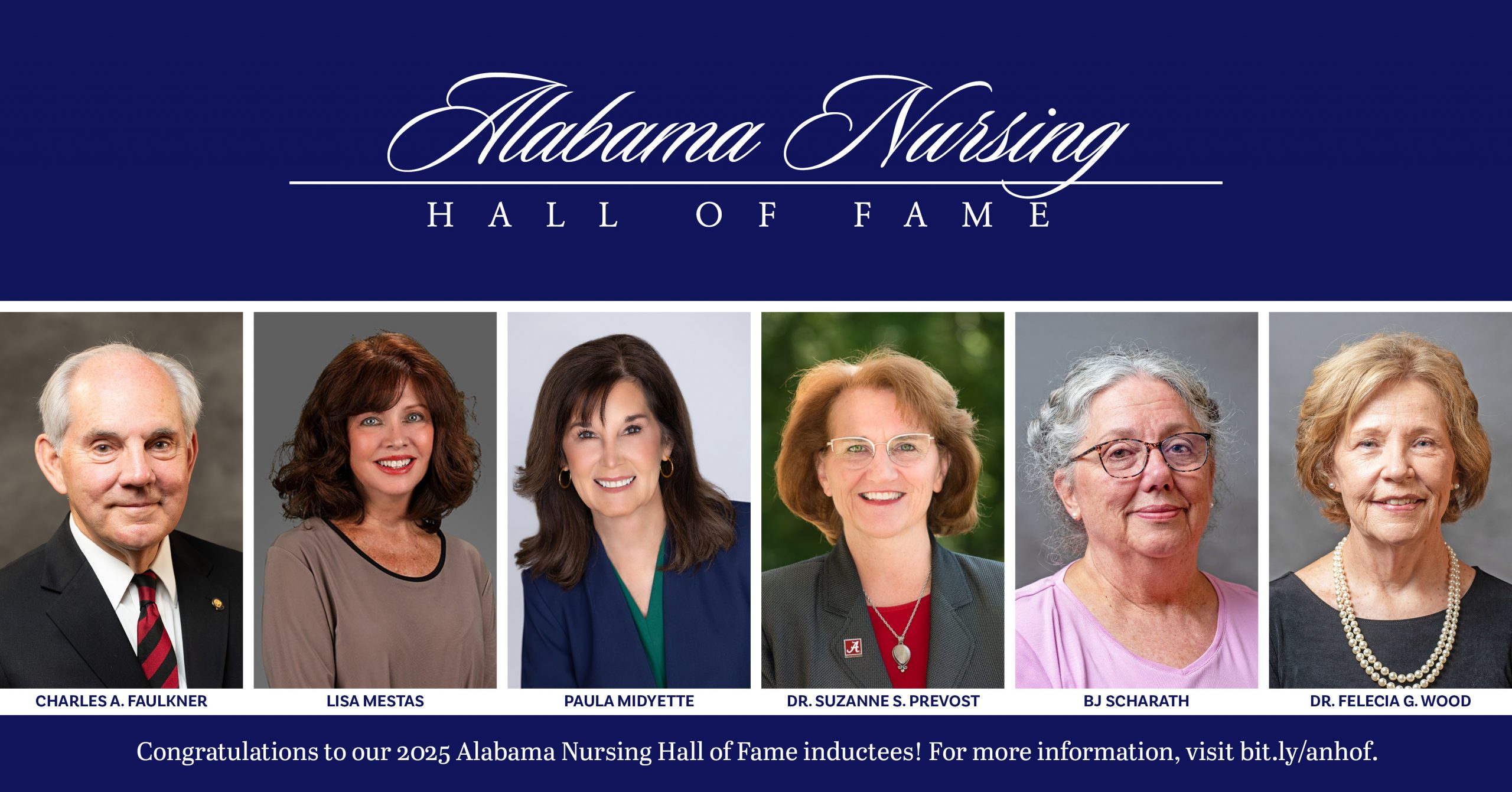
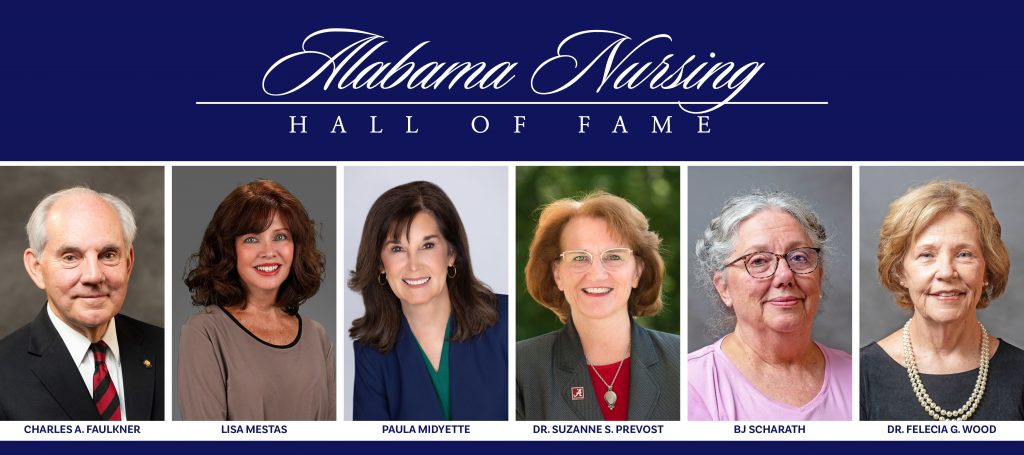
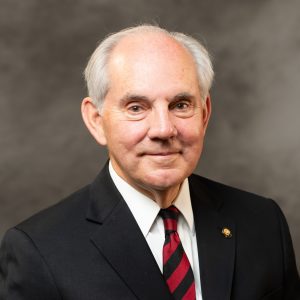
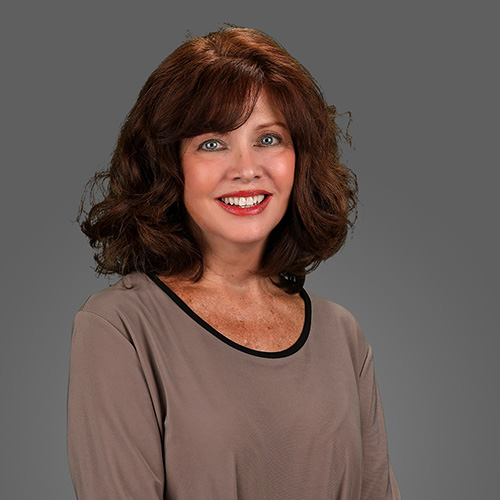
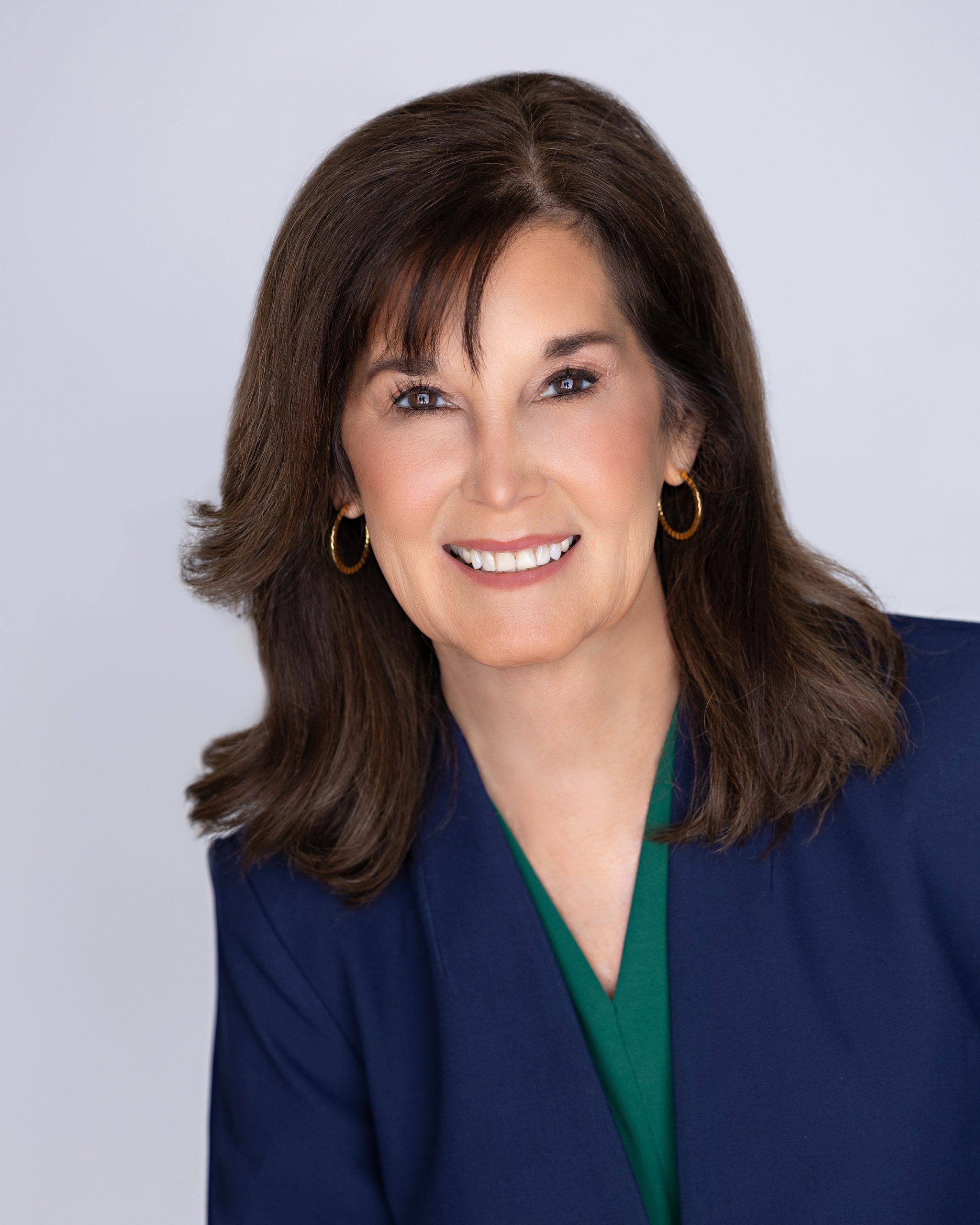
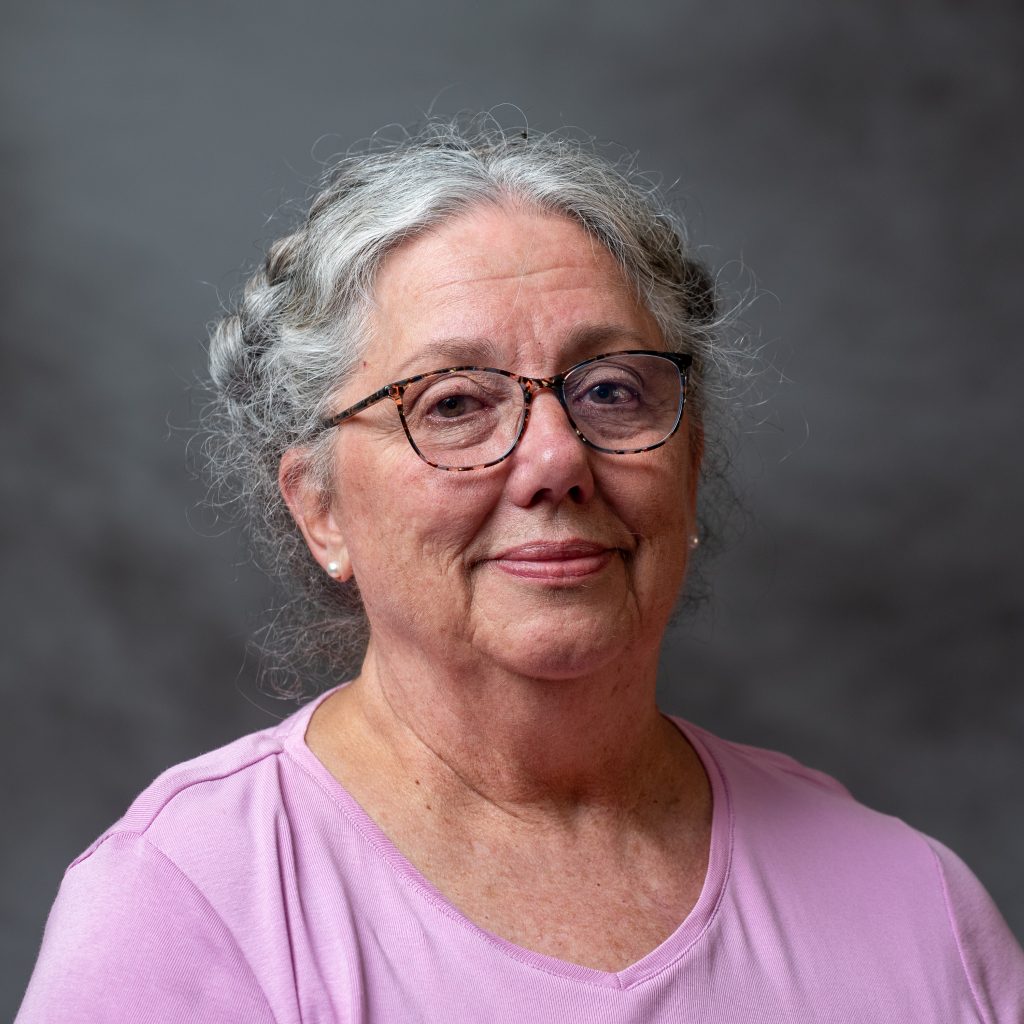
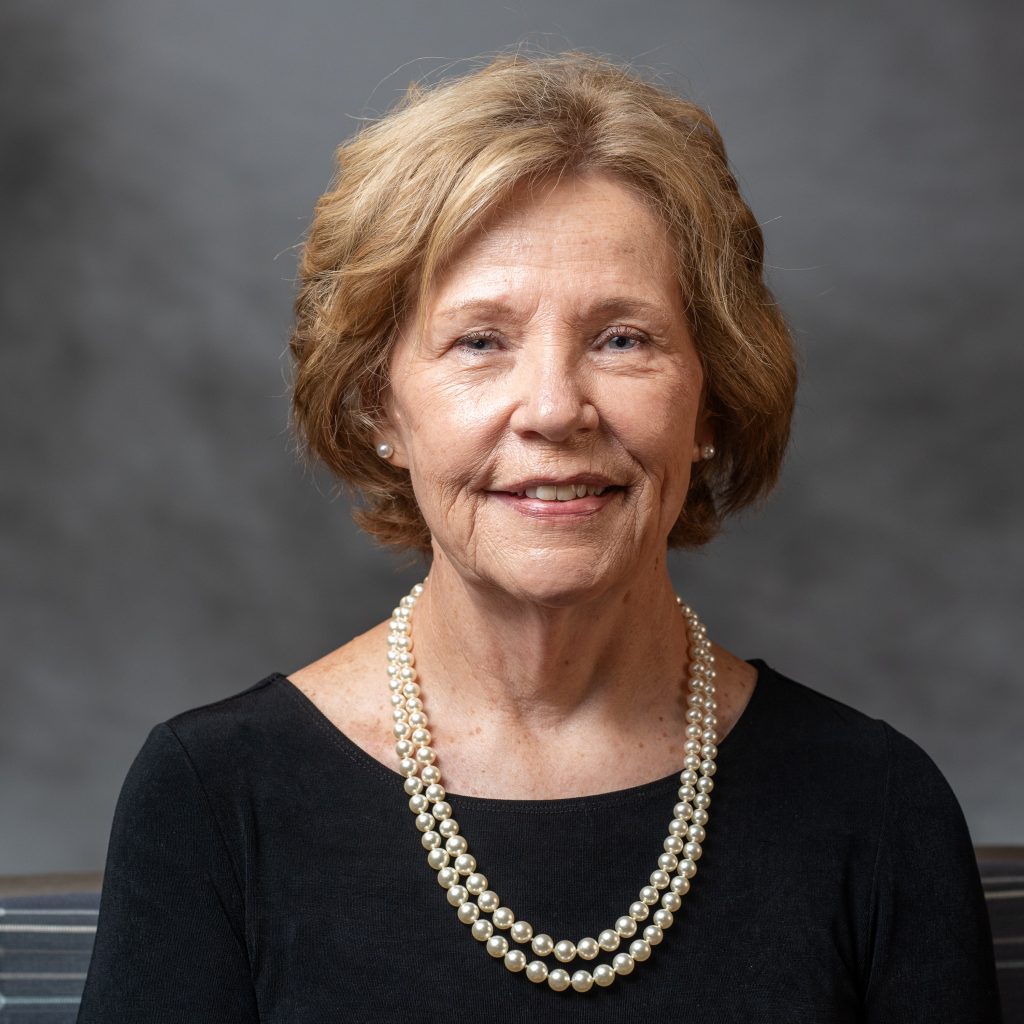
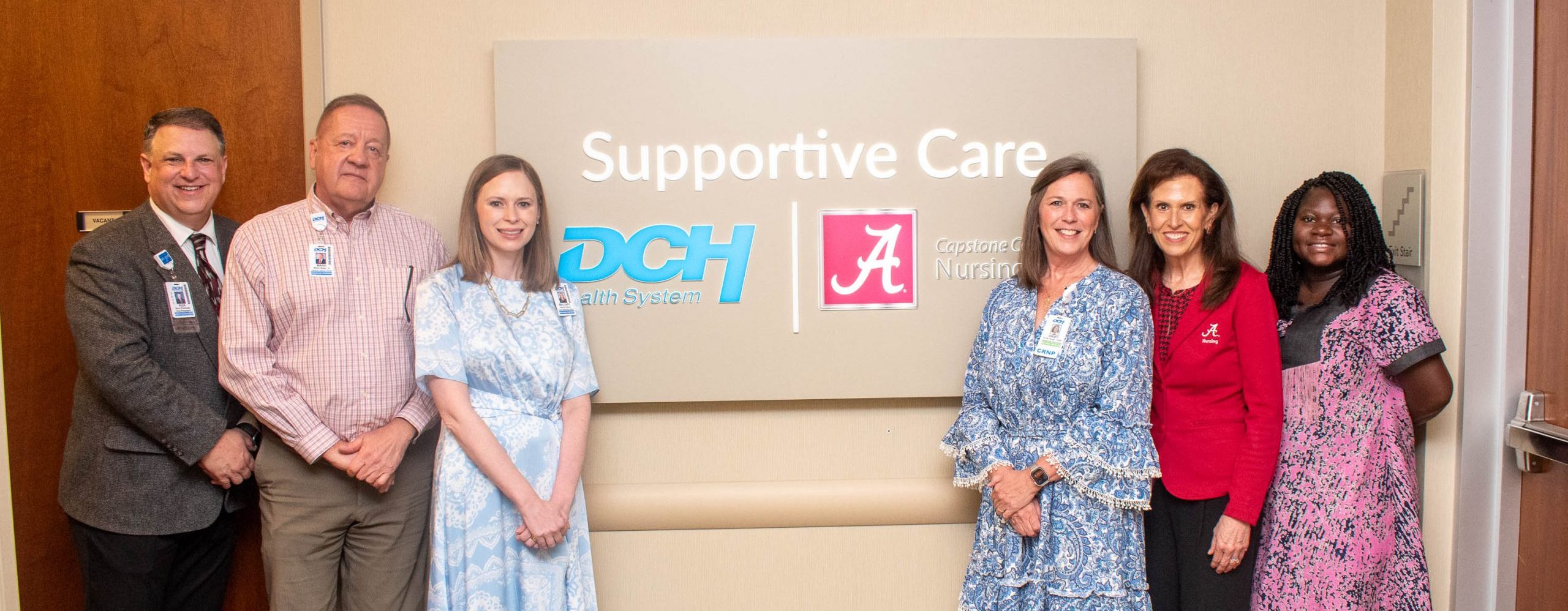
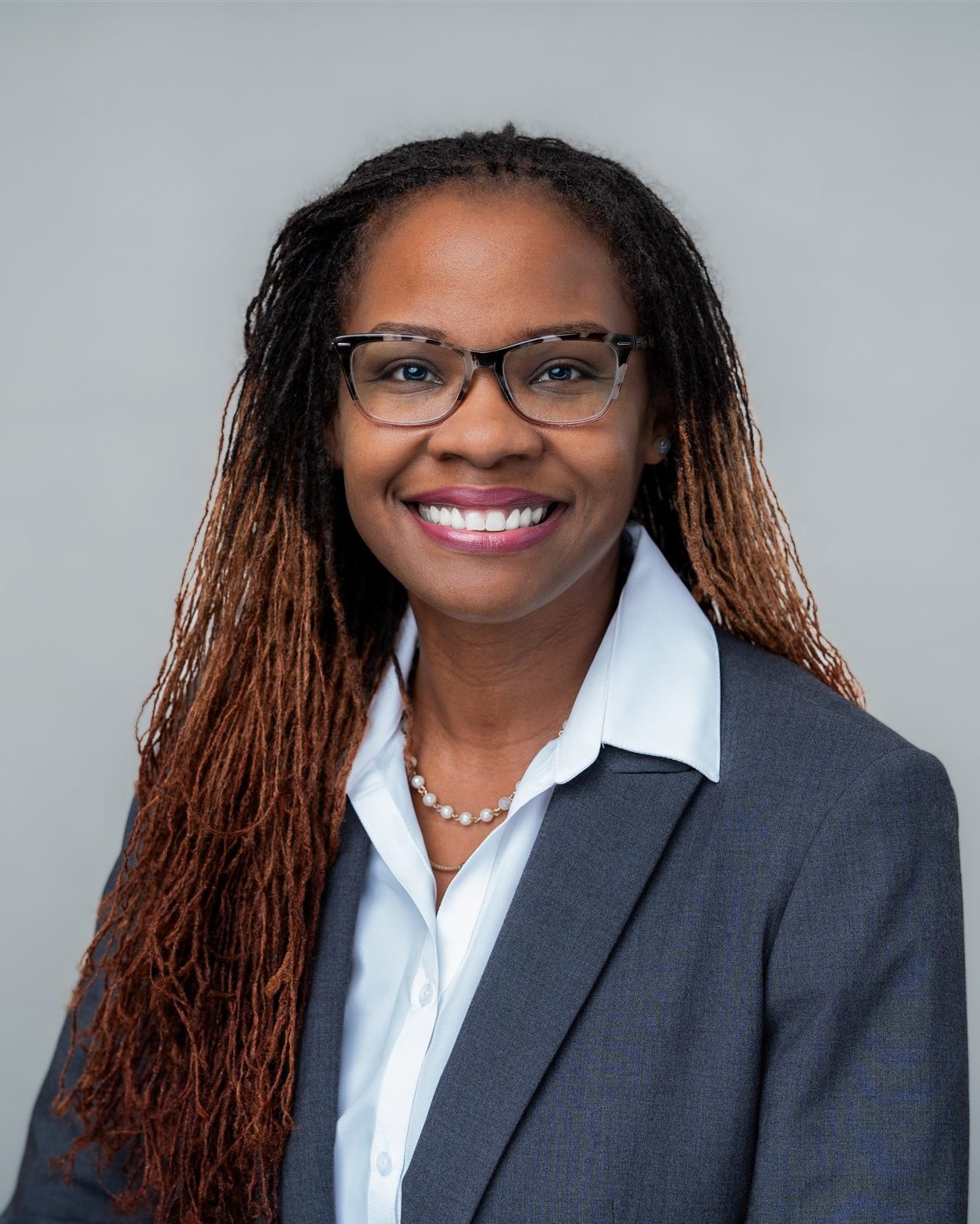
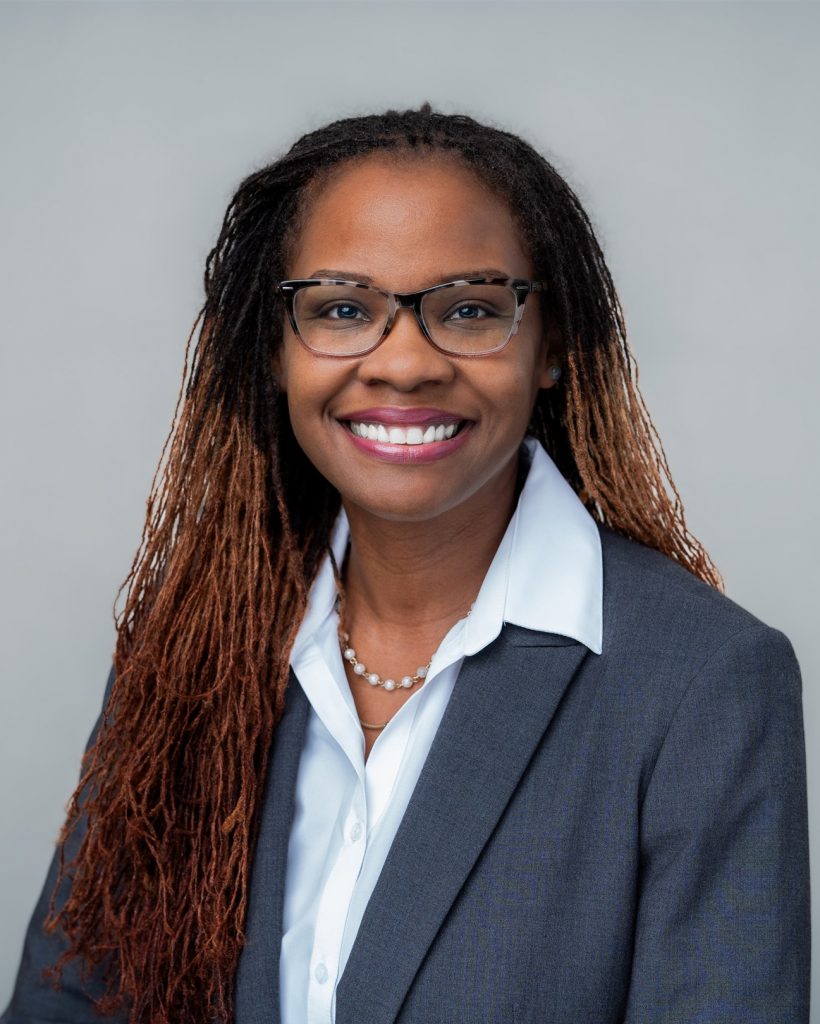
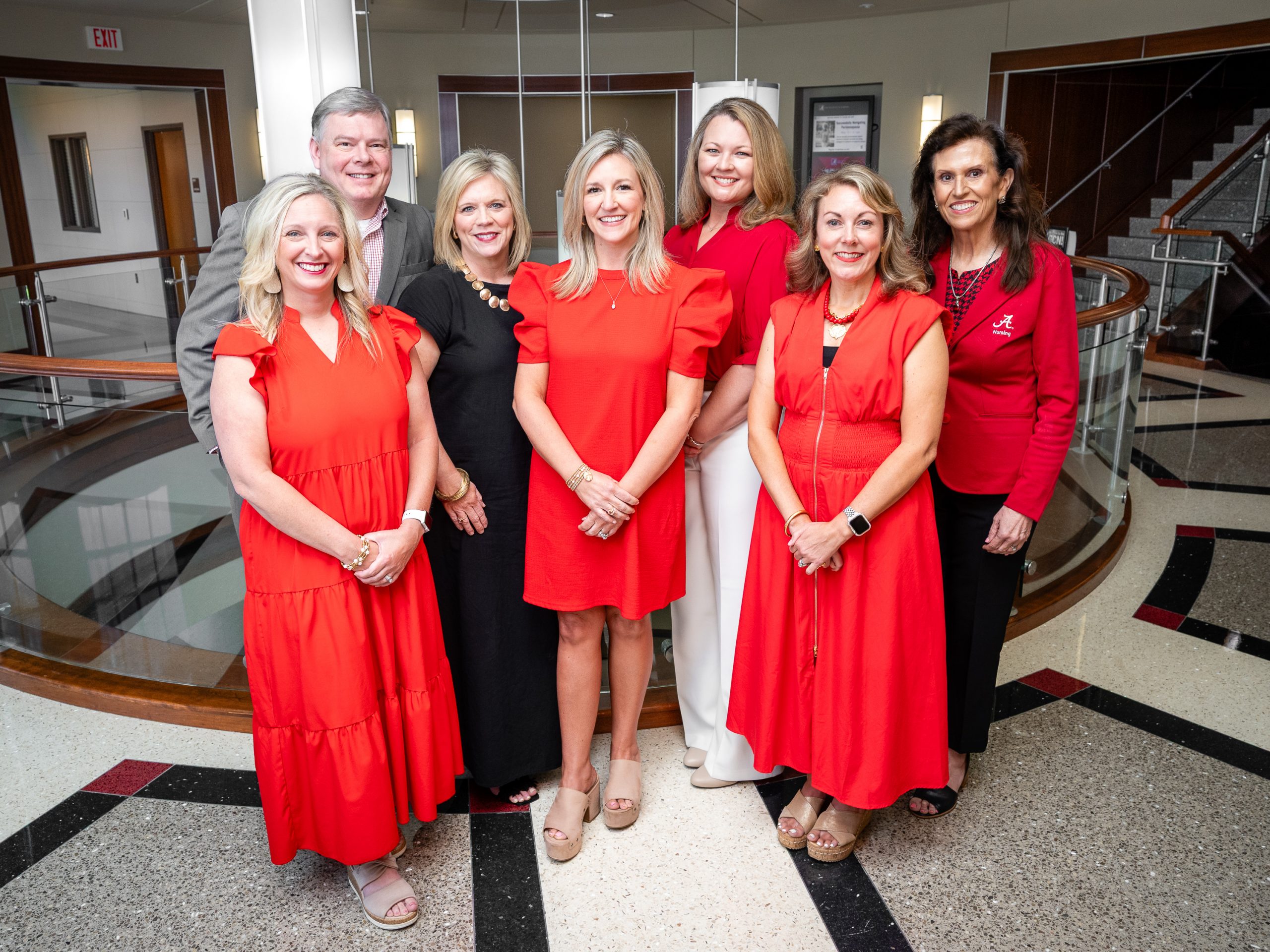

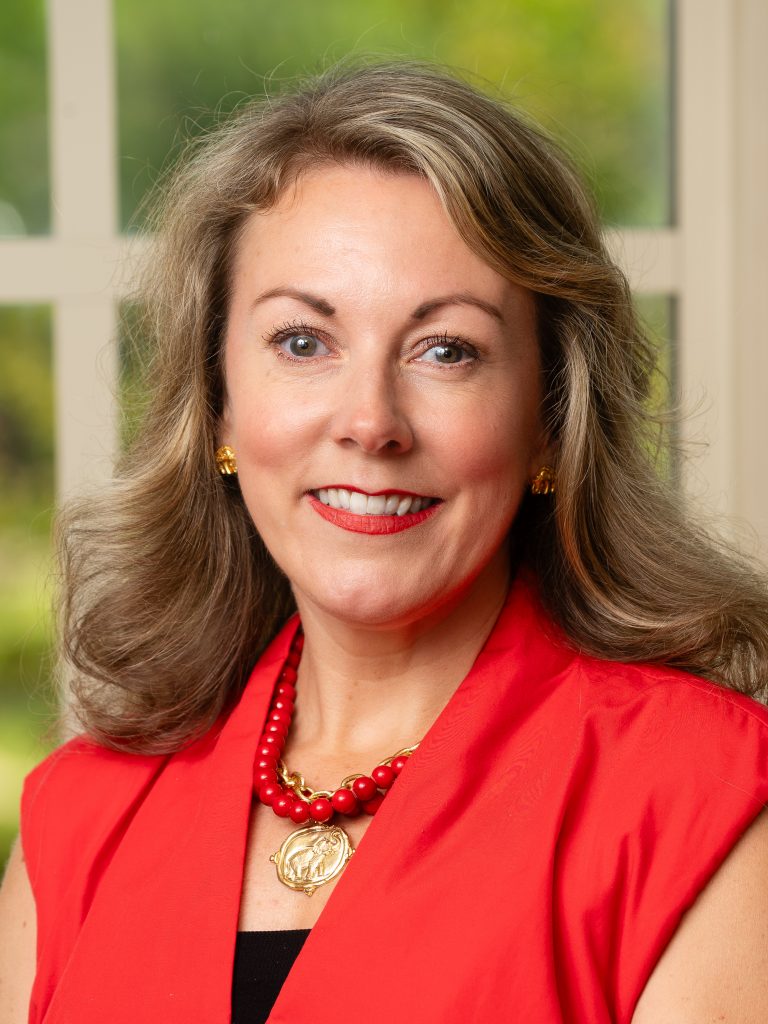
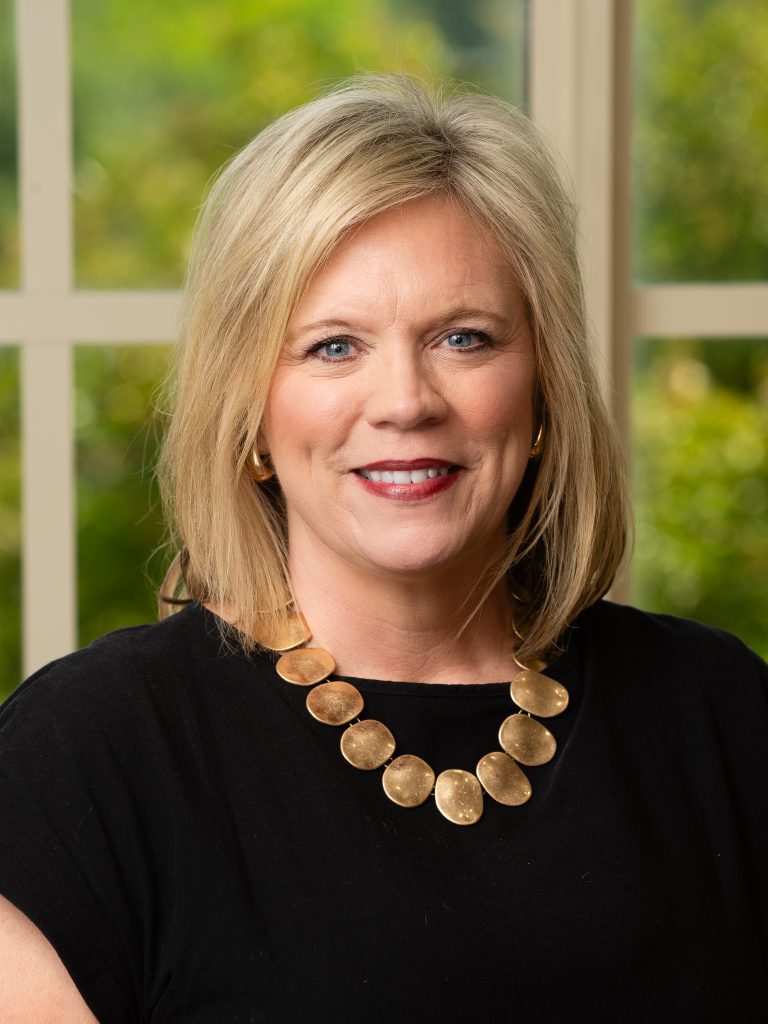
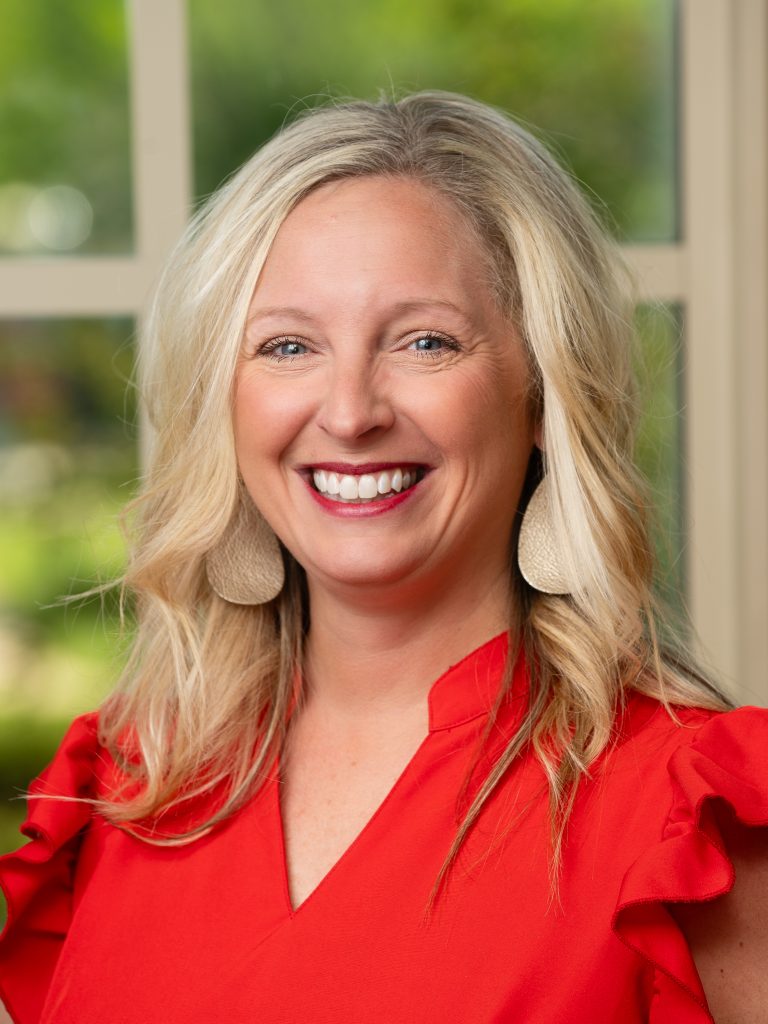
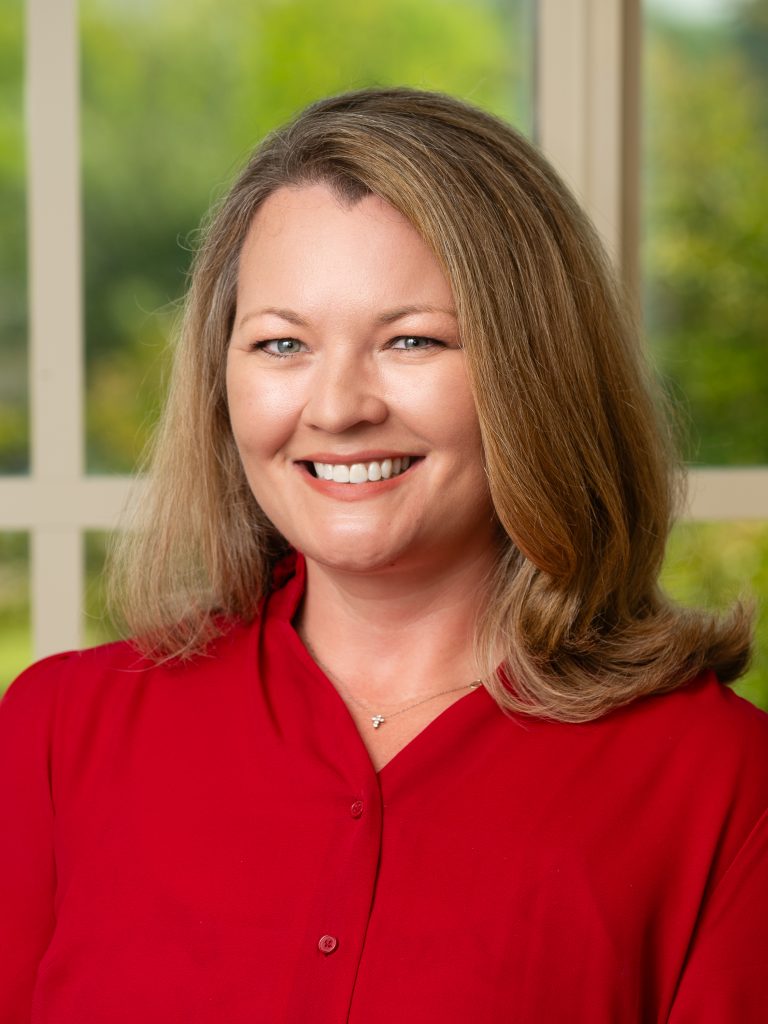
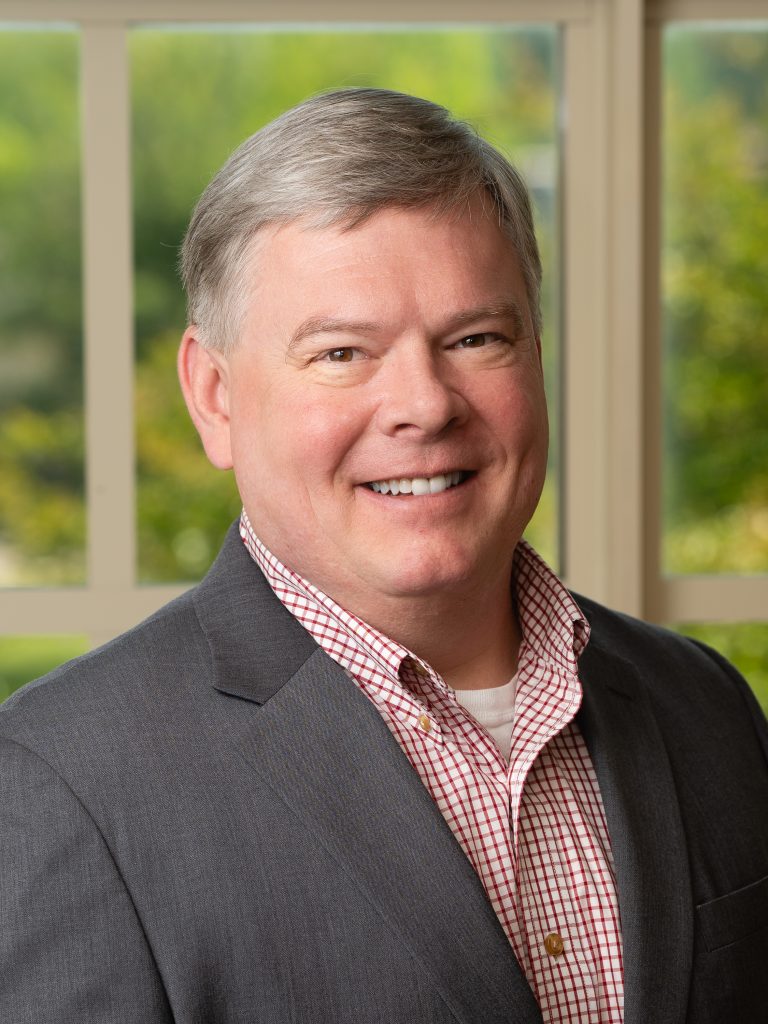

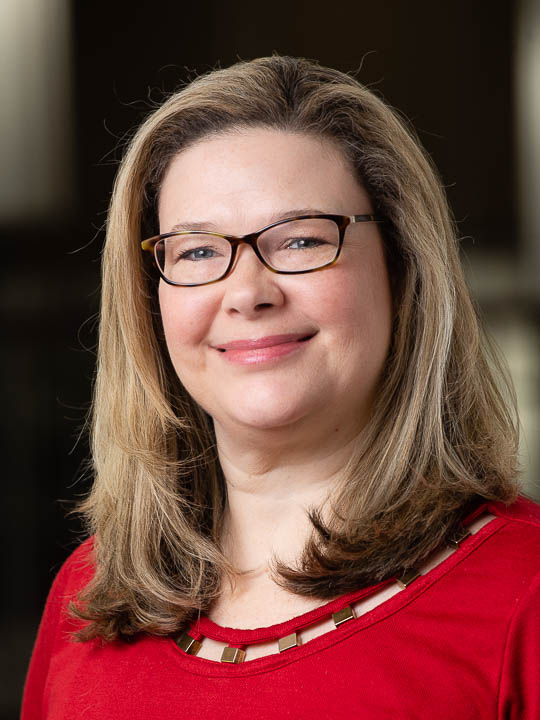
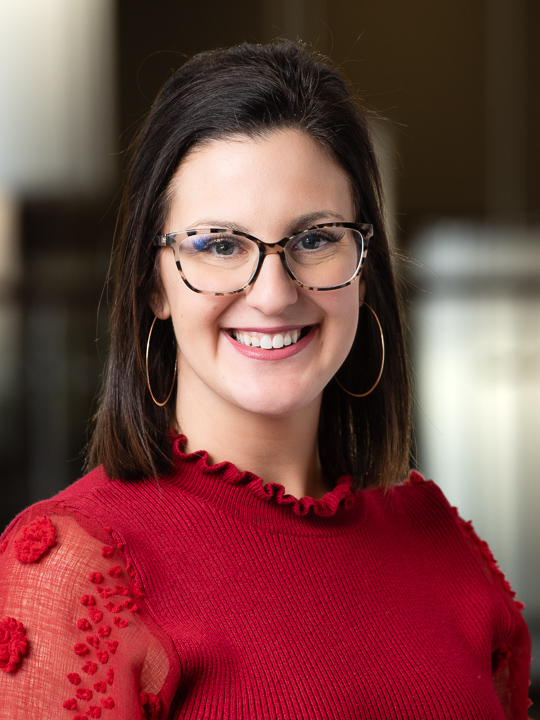


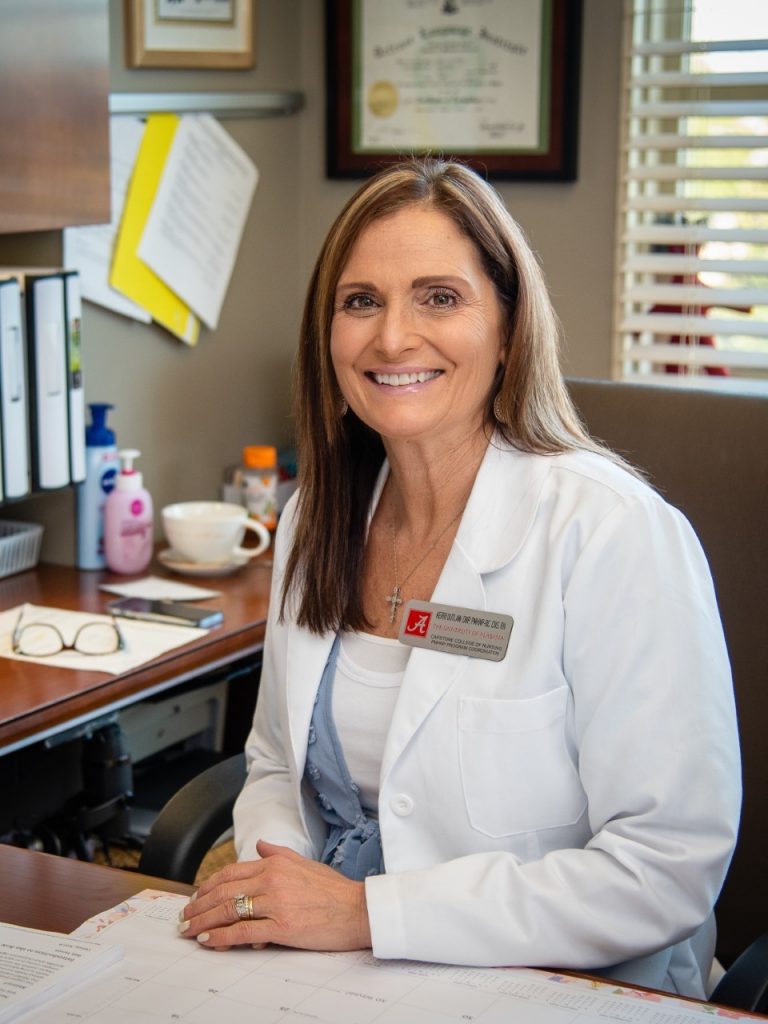

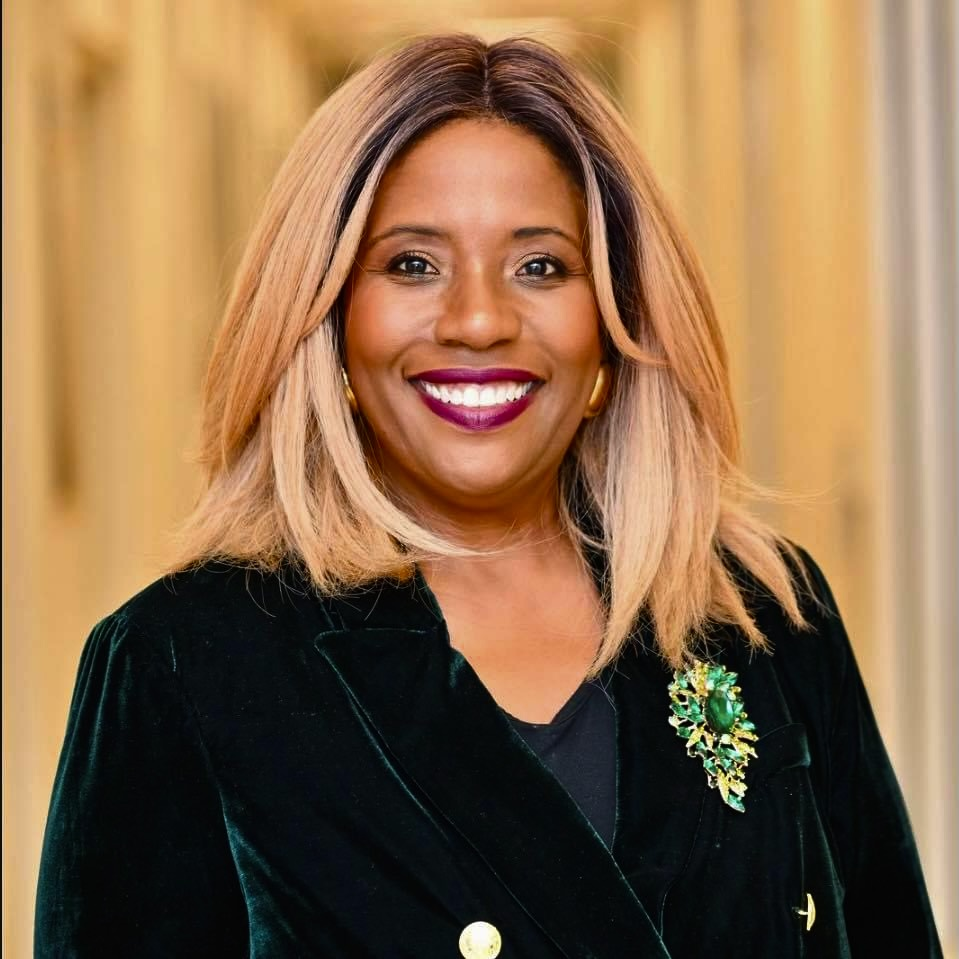
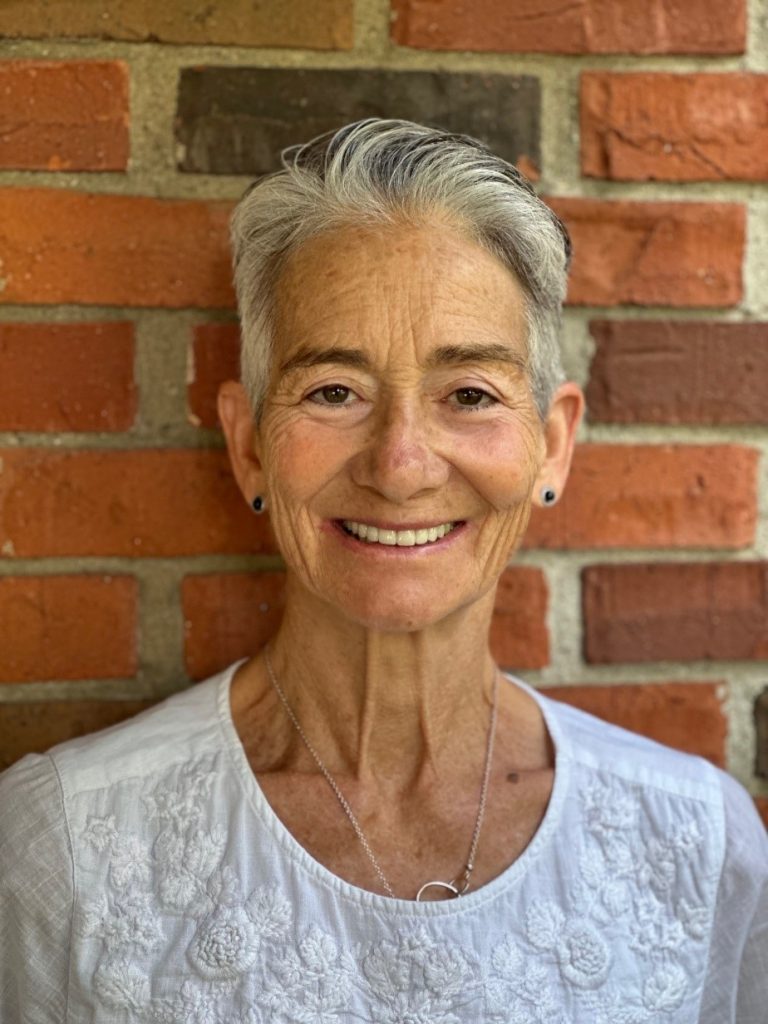



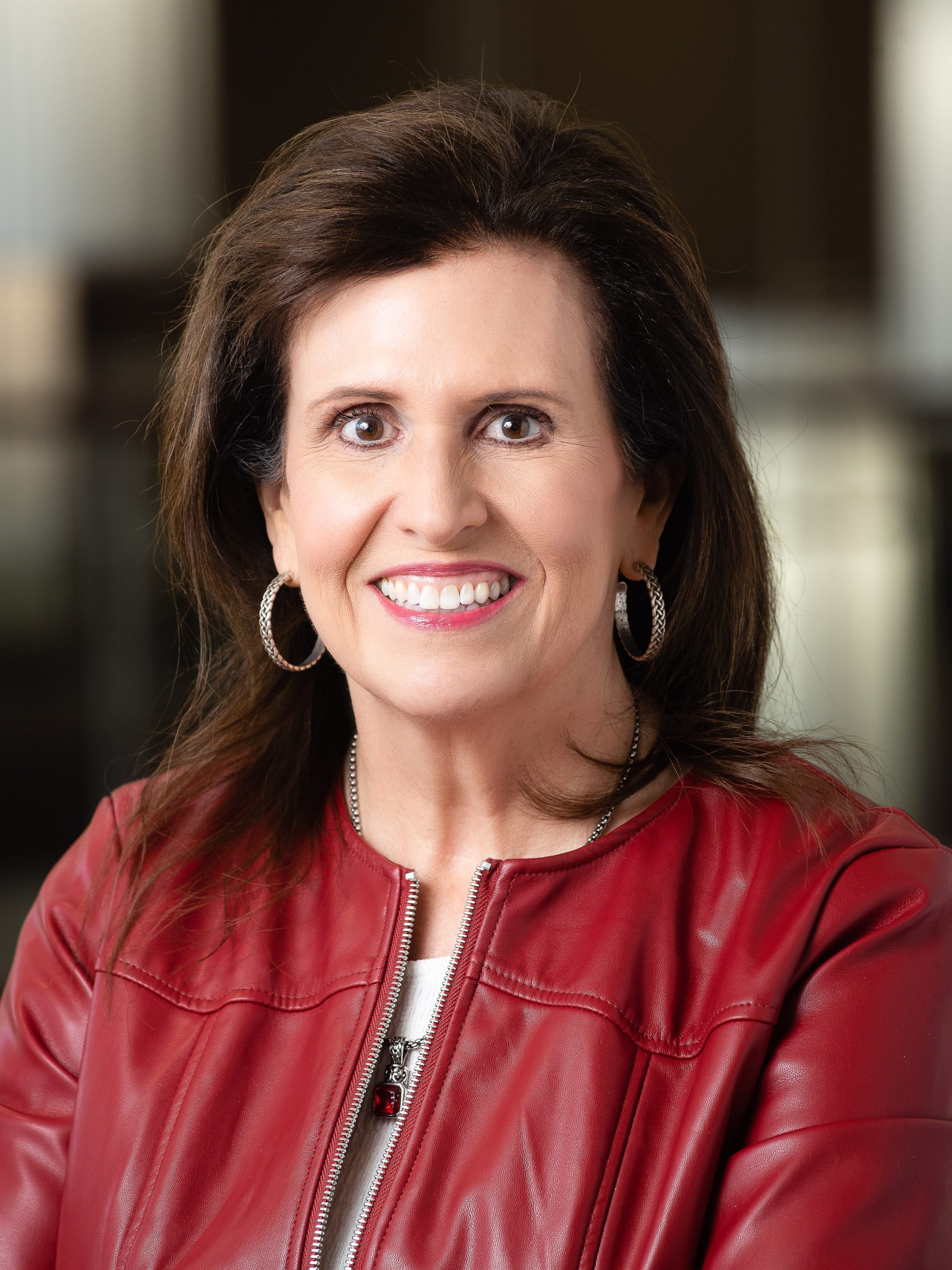
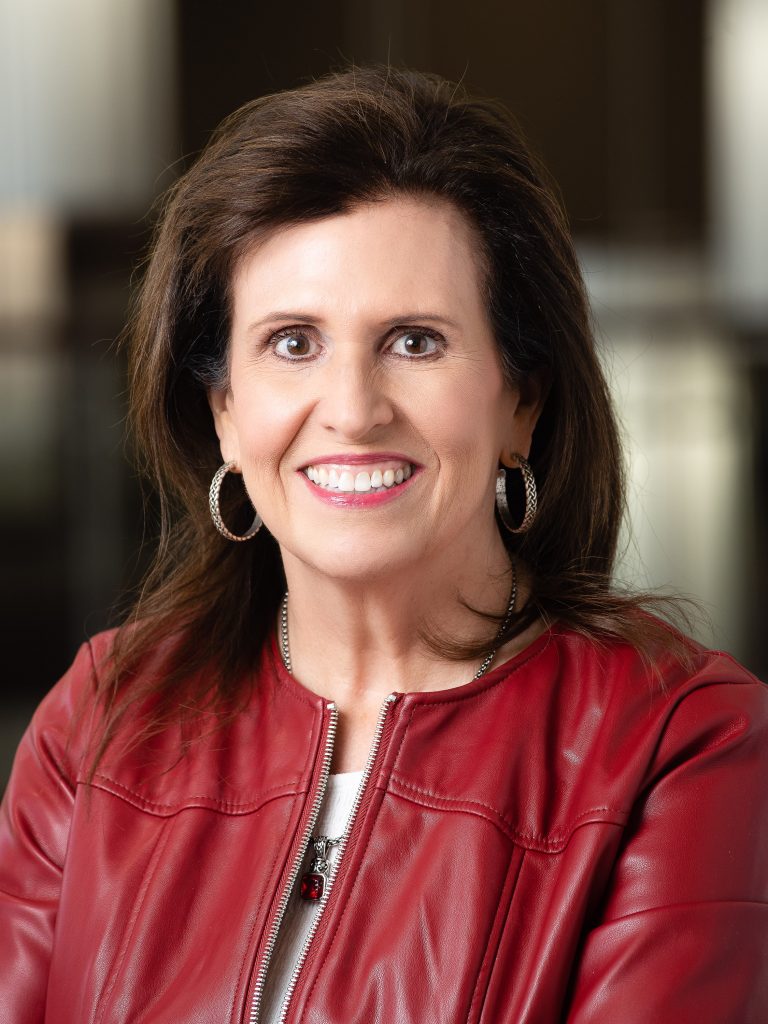


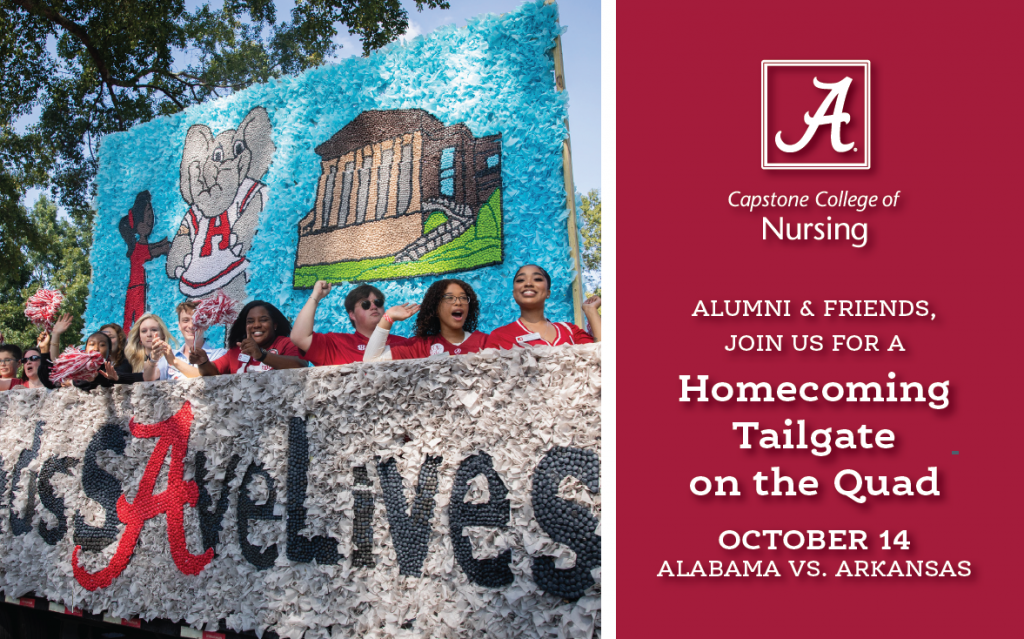

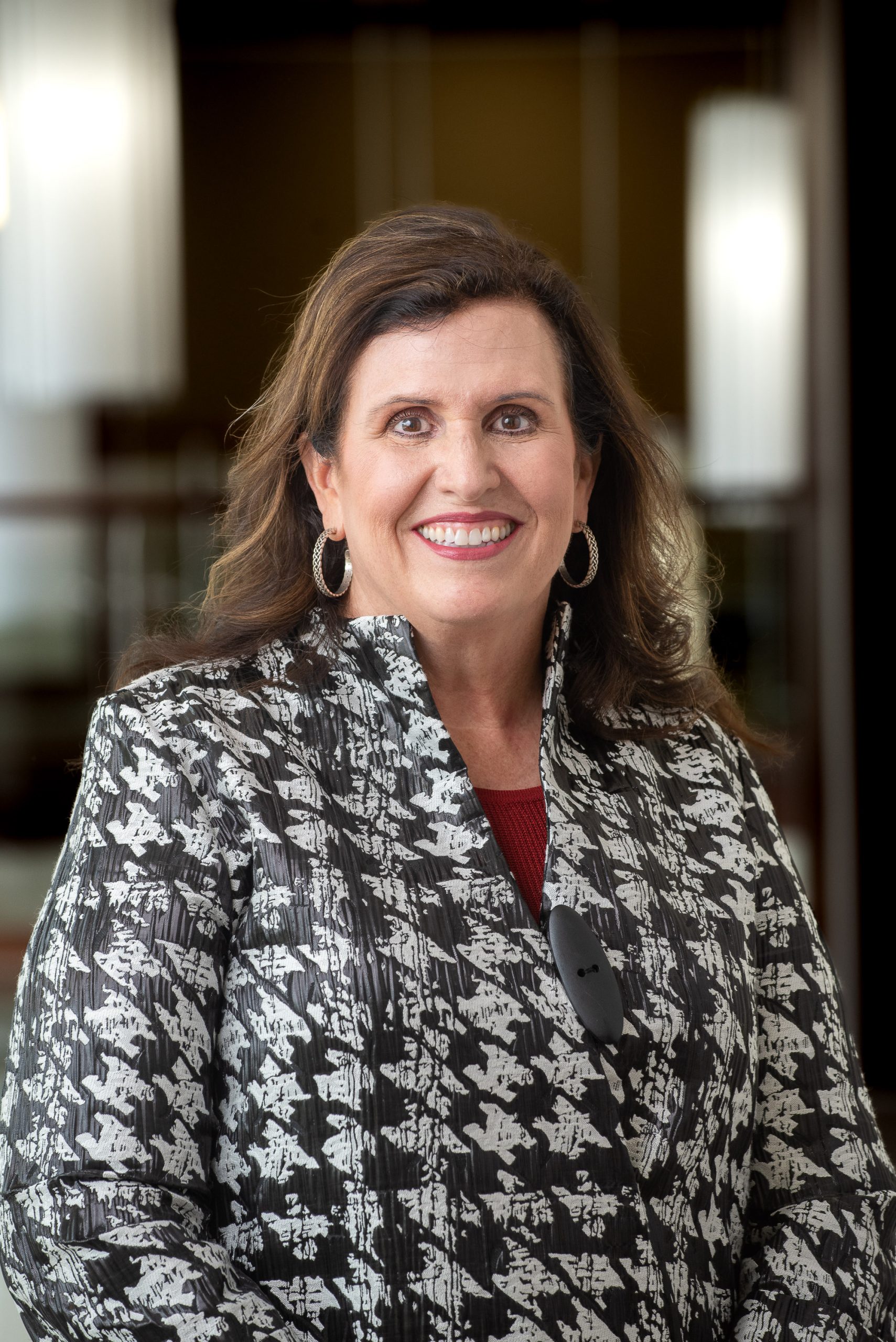
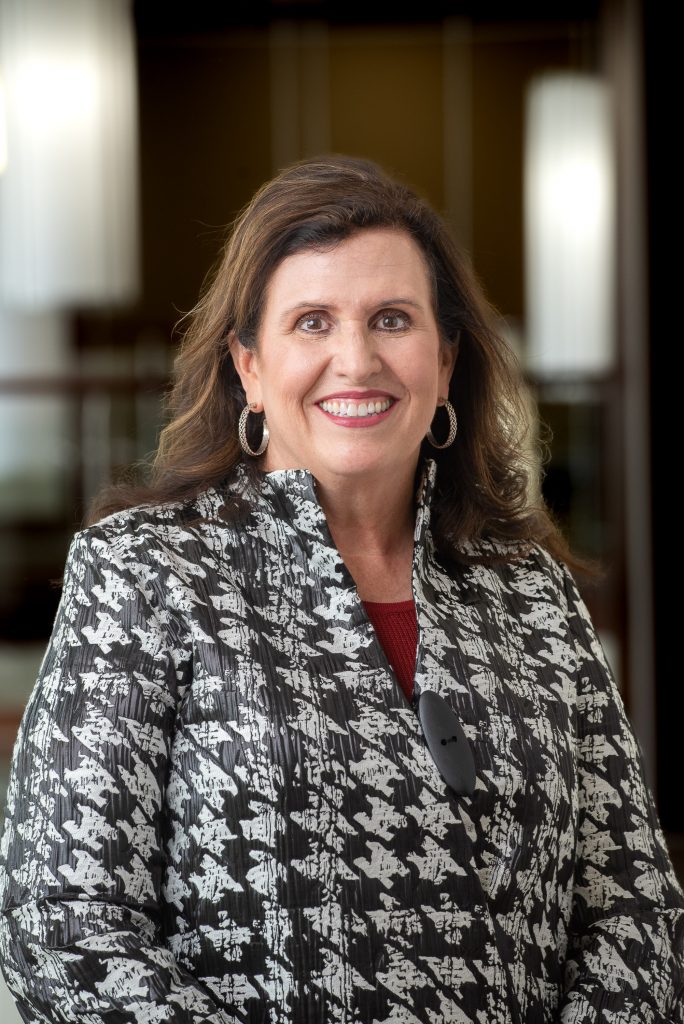

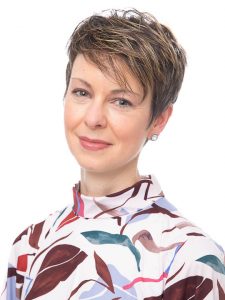
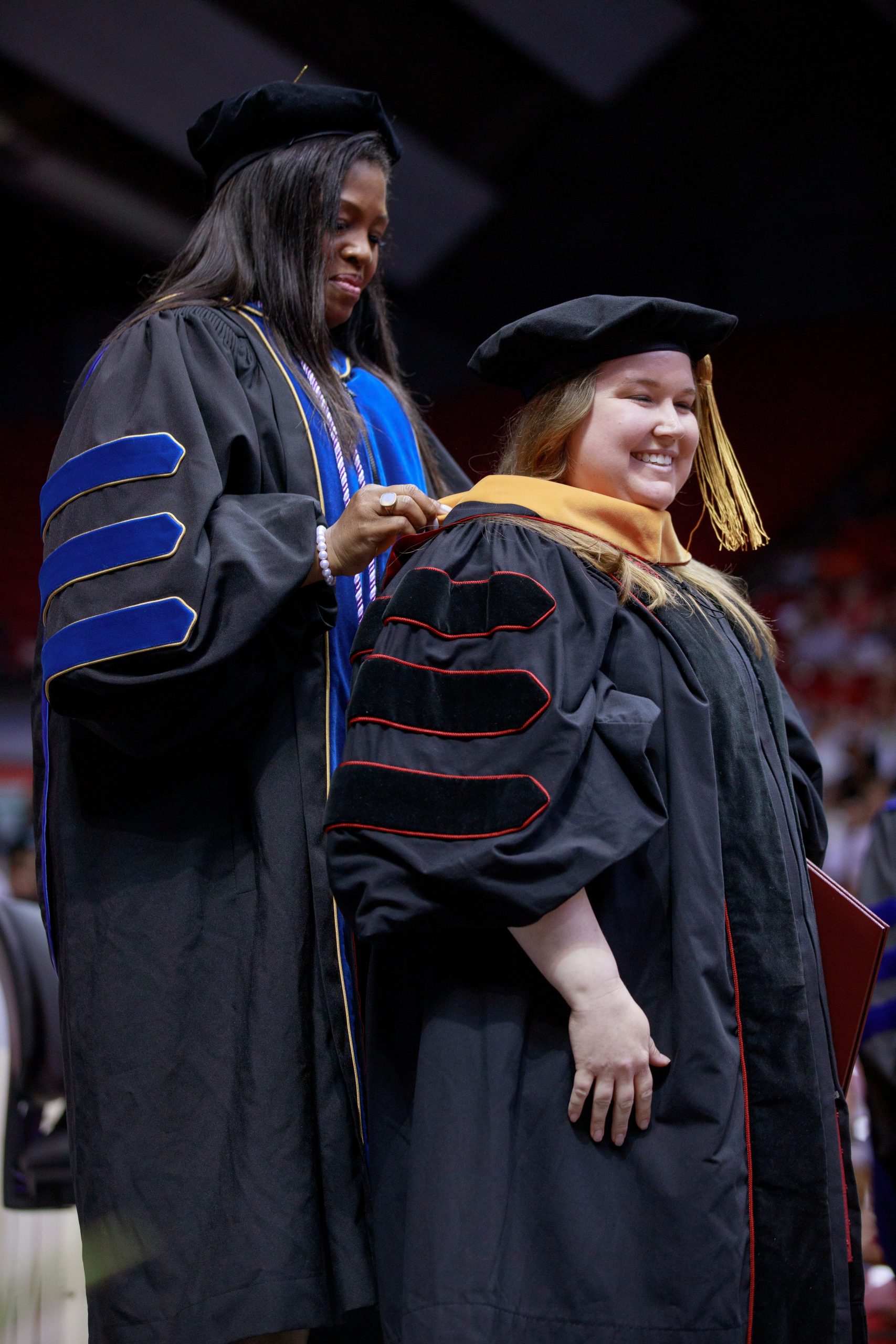
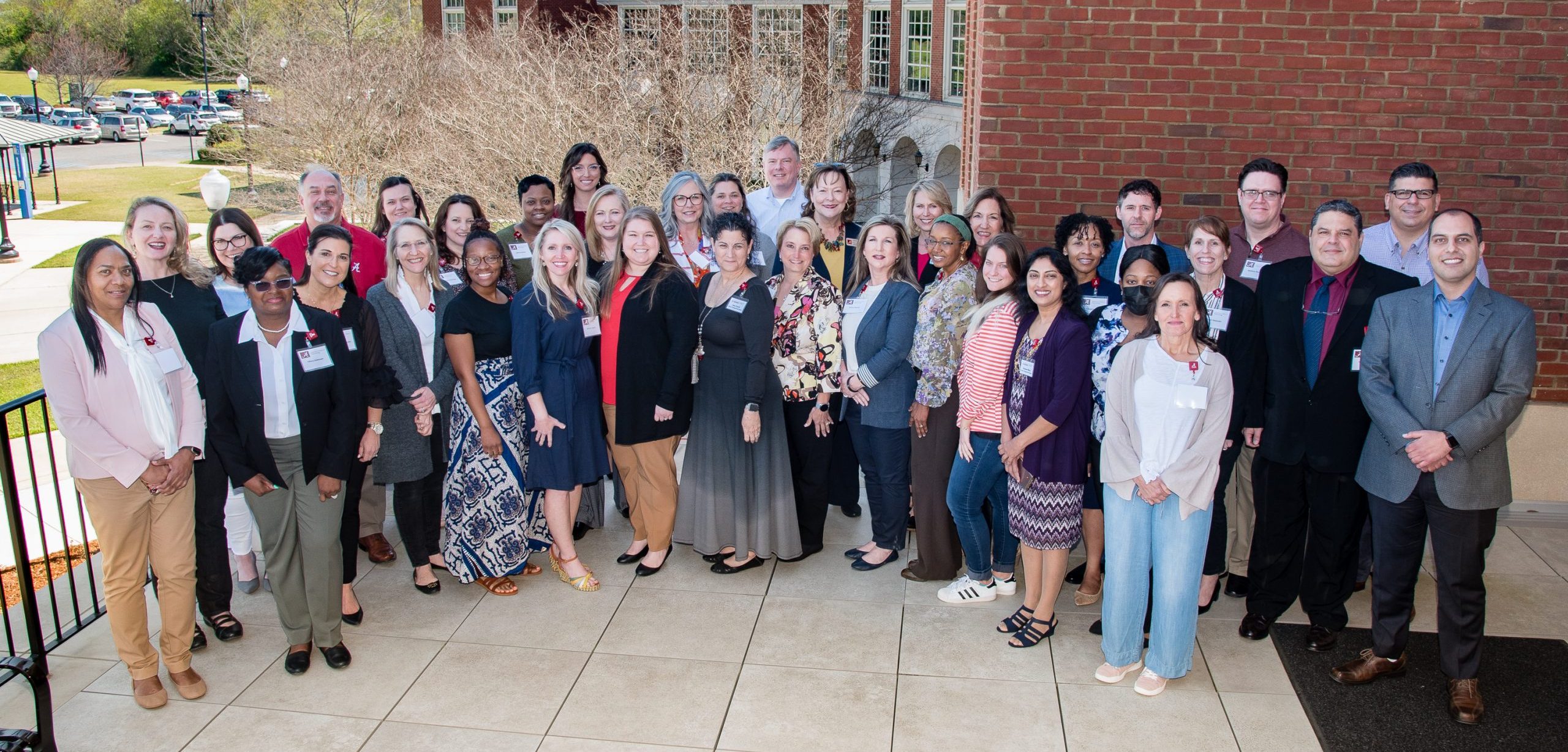
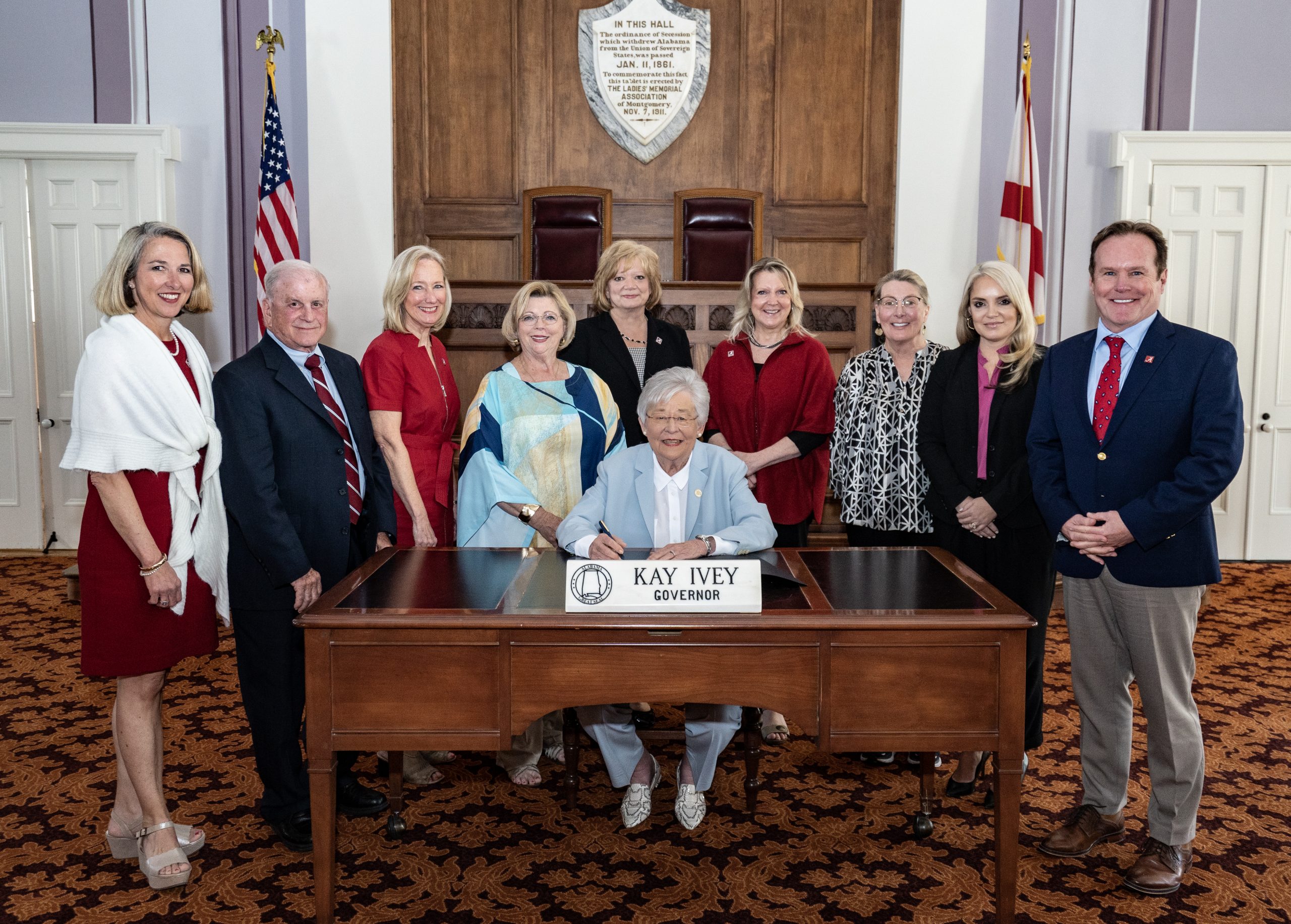
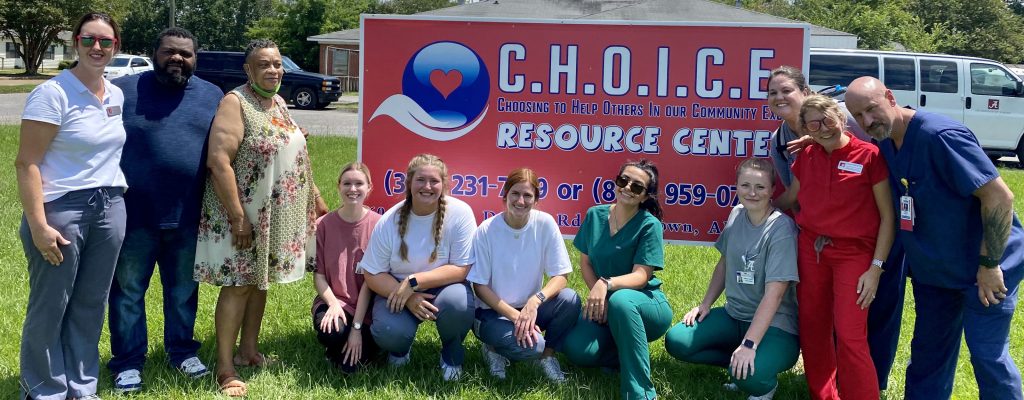
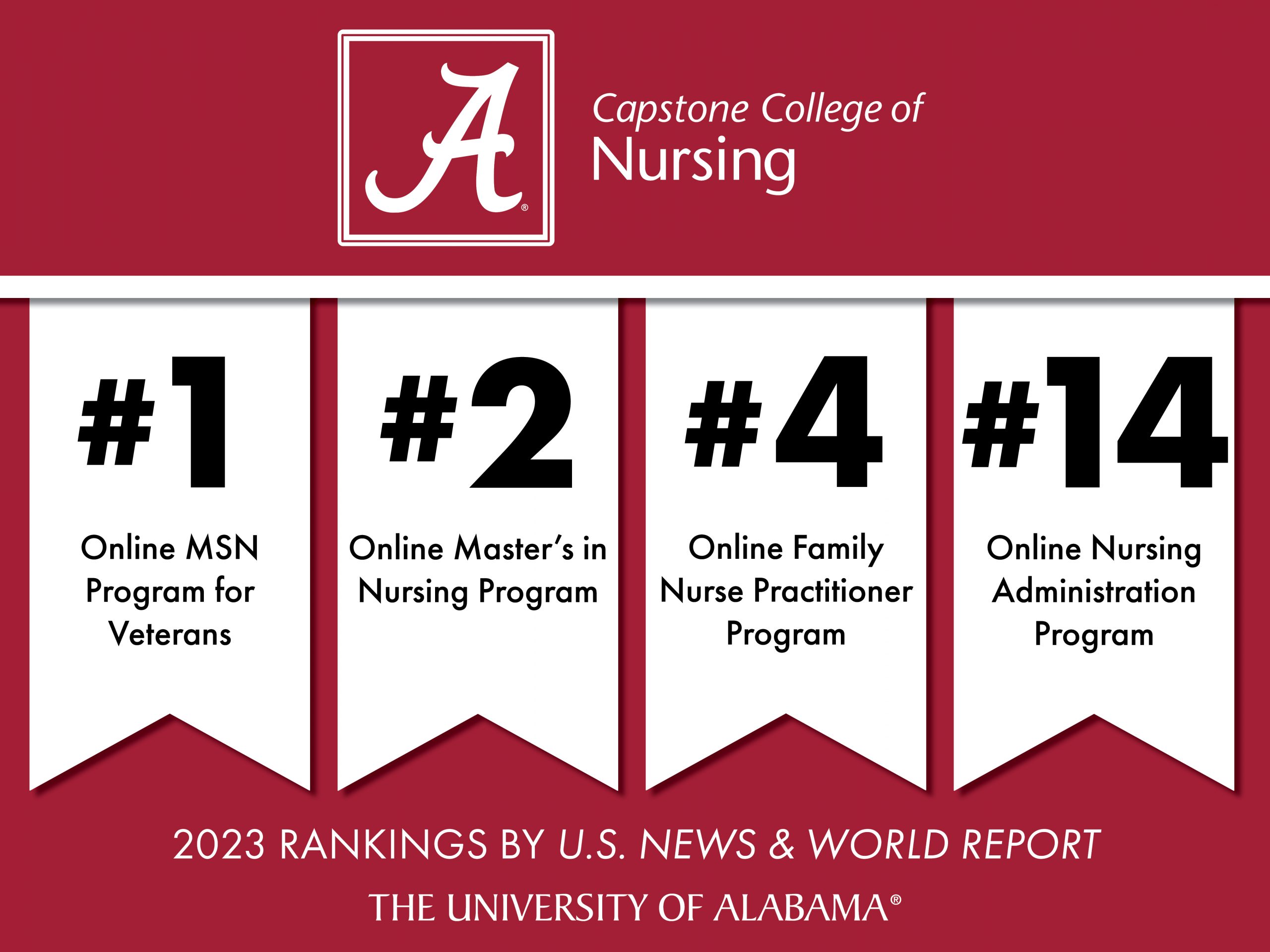
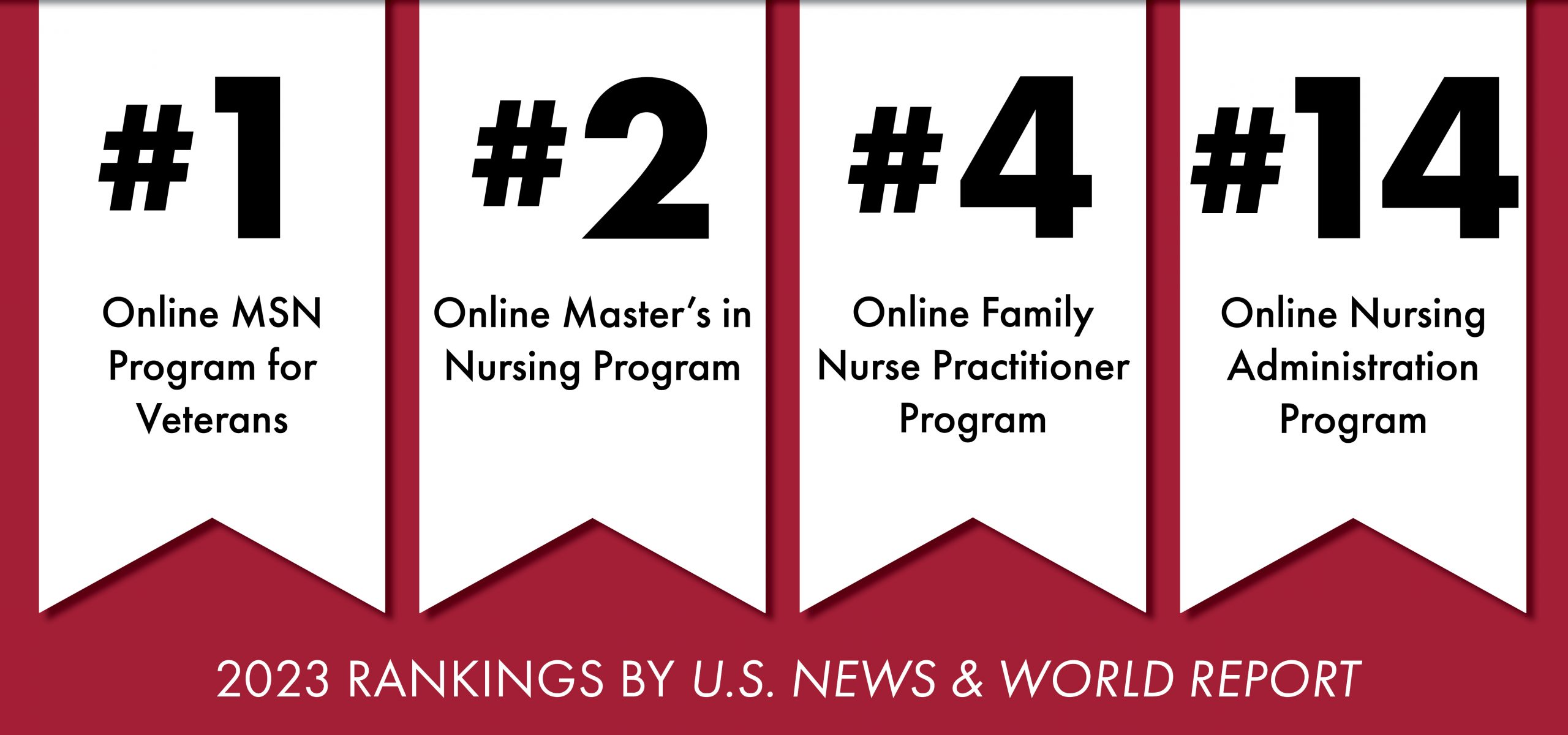
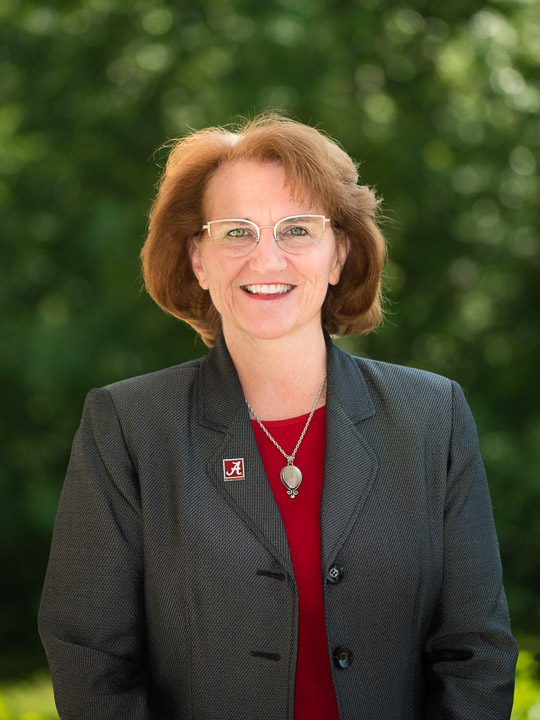
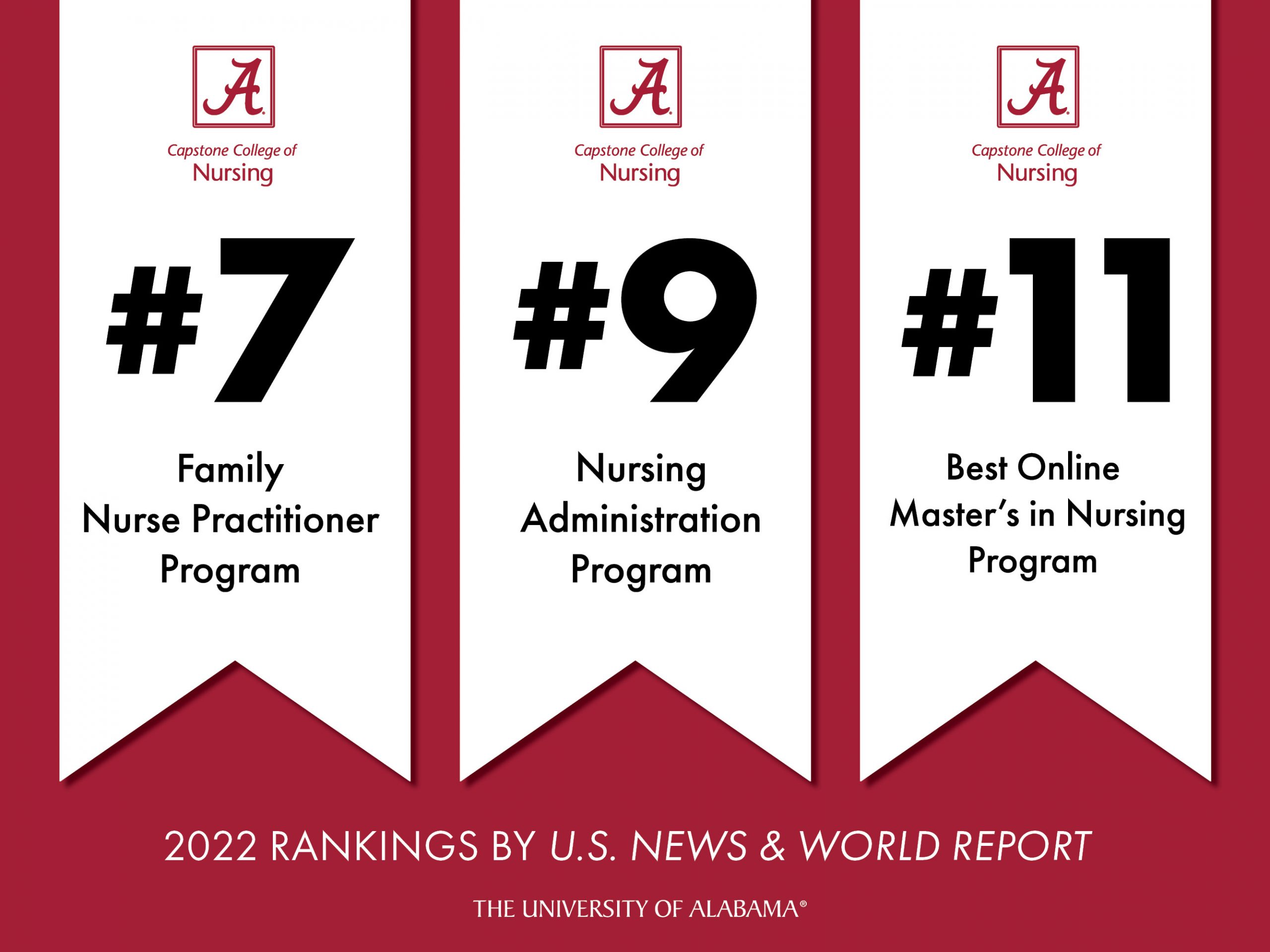
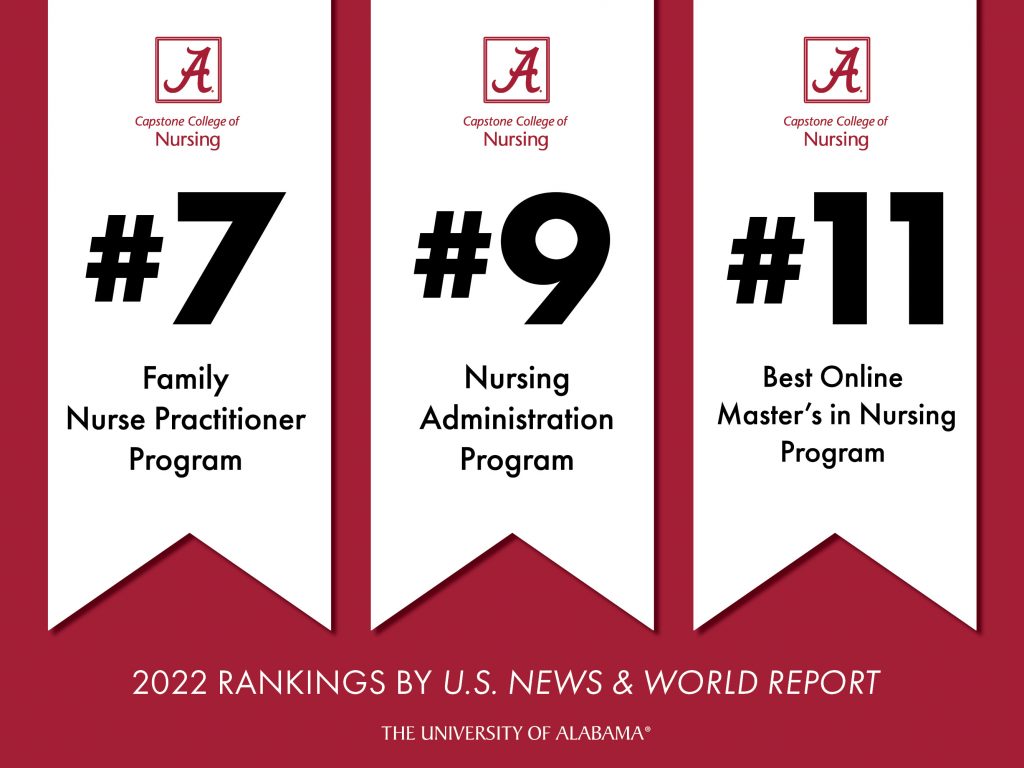

 The University of Alabama’s
The University of Alabama’s 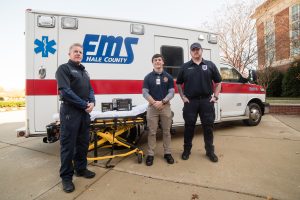

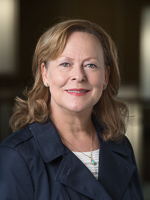
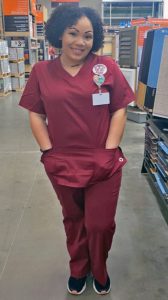

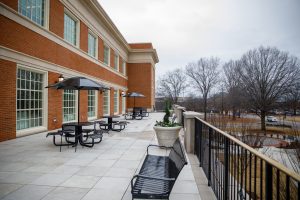

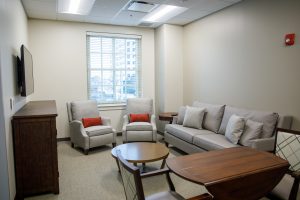
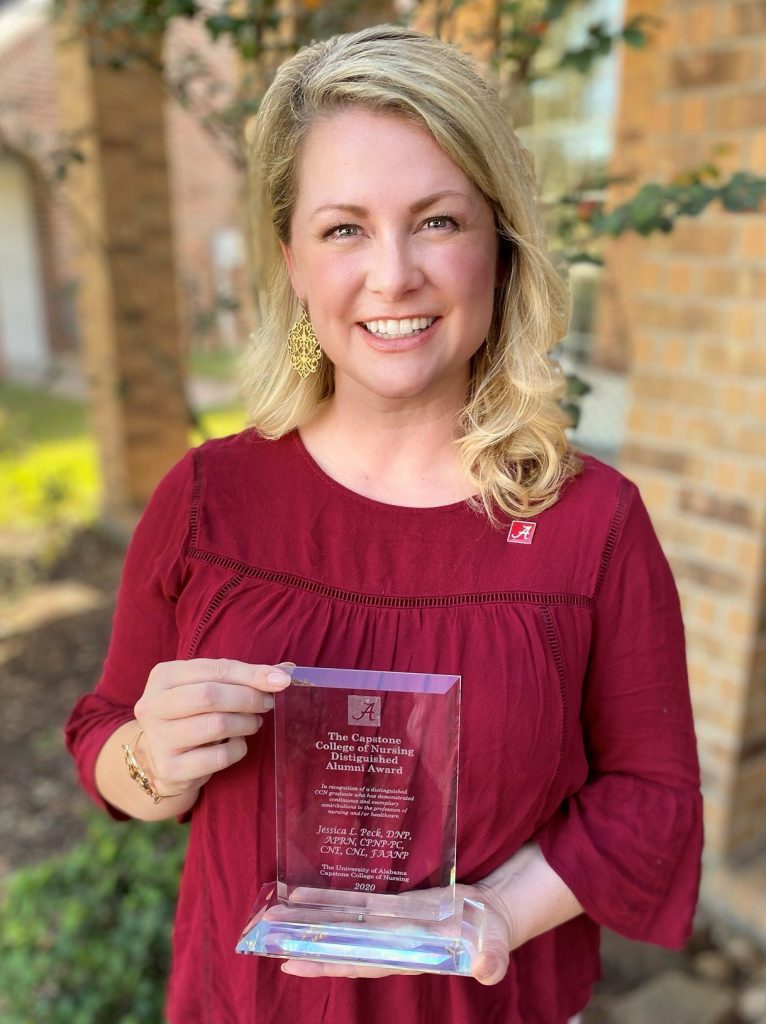 Each year, the Capstone College of Nursing Alumni Association recognizes a distinguished CCN graduate who has demonstrated continuous and exemplary contributions to the profession of nursing and/or healthcare as the recipient of CCN’s Distinguished Alumni Award.
Each year, the Capstone College of Nursing Alumni Association recognizes a distinguished CCN graduate who has demonstrated continuous and exemplary contributions to the profession of nursing and/or healthcare as the recipient of CCN’s Distinguished Alumni Award.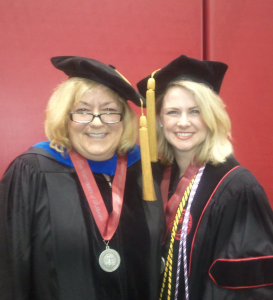 When I was ready to seek doctoral education, as a nurse clinician, I knew the DNP was right for me. At the time, there were no DNP programs in Texas, so I began to look elsewhere, where I quickly found The University of Alabama. With nationally recognized and respected nursing scholars and a well-organized and leading-edge DNP program, I was quickly engaged. During my interview with the faculty who would become chair of my project, Dr. Marietta Stanton, she asked me “Are you willing to make the sacrifices that will be necessary to be successful in this program?” After a pause, I said “yes” and with no pause she said, “The faculty are willing to do the same.” I was sold.
When I was ready to seek doctoral education, as a nurse clinician, I knew the DNP was right for me. At the time, there were no DNP programs in Texas, so I began to look elsewhere, where I quickly found The University of Alabama. With nationally recognized and respected nursing scholars and a well-organized and leading-edge DNP program, I was quickly engaged. During my interview with the faculty who would become chair of my project, Dr. Marietta Stanton, she asked me “Are you willing to make the sacrifices that will be necessary to be successful in this program?” After a pause, I said “yes” and with no pause she said, “The faculty are willing to do the same.” I was sold.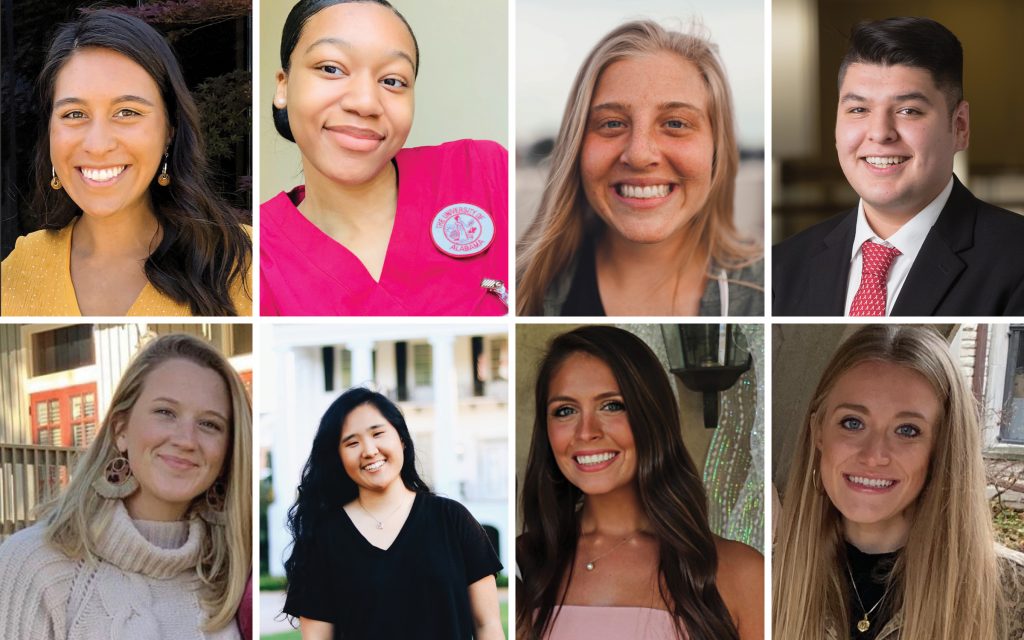
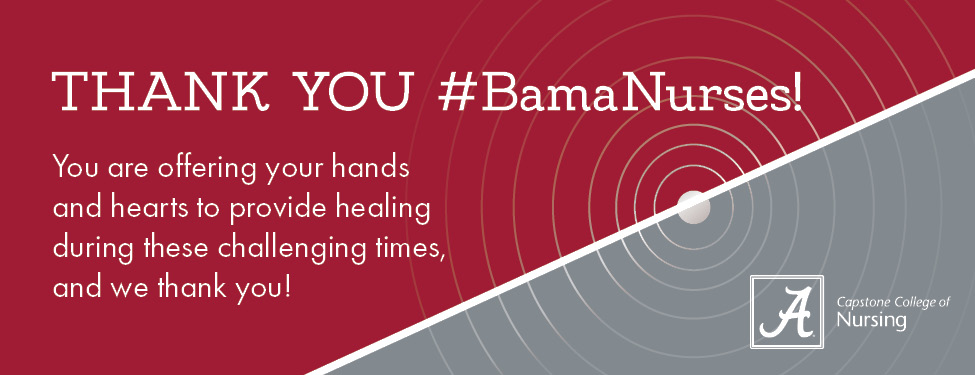
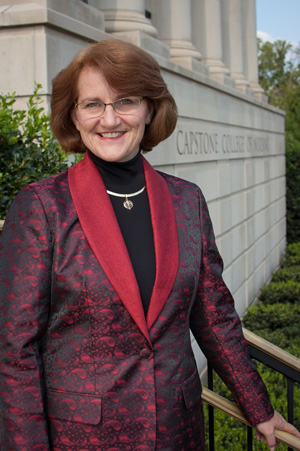
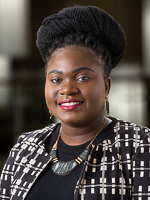 Dr. Mercy Mumba, Assistant Professor at the Capstone College of Nursing, grew up in Zambia, where nursing was not a well-respected profession. After moving to the United States, Dr. Mumba earned her Bachelor of Science in Nursing from the University of Texas at Arlington. Only two years after graduating with her BSN, she entered a BSN to PhD program; and four years later she graduated with a PhD from UT Arlington’s College of Nursing and Health Innovation. A passionate researcher, Dr. Mumba has a number of funded grants, most of which concentrate on preventions and treatment of substance abuse disorders and their co-morbid psychiatric mental health conditions.
Dr. Mercy Mumba, Assistant Professor at the Capstone College of Nursing, grew up in Zambia, where nursing was not a well-respected profession. After moving to the United States, Dr. Mumba earned her Bachelor of Science in Nursing from the University of Texas at Arlington. Only two years after graduating with her BSN, she entered a BSN to PhD program; and four years later she graduated with a PhD from UT Arlington’s College of Nursing and Health Innovation. A passionate researcher, Dr. Mumba has a number of funded grants, most of which concentrate on preventions and treatment of substance abuse disorders and their co-morbid psychiatric mental health conditions. Capstone College of Nursing assistant professor, Dr. Megan Lippe, has been accepted into the sixth cohort of Cambia Health Foundation’s Sojourns® Scholar Leadership Program. The Sojourns Scholar Leadership Program’s purpose is to identify, cultivate and advance the next generation of palliative care leaders. Each Scholar receives funding over a two-year period to conduct a project that will essentially enhance the field of palliative care. Those Scholars also will be mentored in the design and implementation of a development plan that supports their growth as palliative care leaders.
Capstone College of Nursing assistant professor, Dr. Megan Lippe, has been accepted into the sixth cohort of Cambia Health Foundation’s Sojourns® Scholar Leadership Program. The Sojourns Scholar Leadership Program’s purpose is to identify, cultivate and advance the next generation of palliative care leaders. Each Scholar receives funding over a two-year period to conduct a project that will essentially enhance the field of palliative care. Those Scholars also will be mentored in the design and implementation of a development plan that supports their growth as palliative care leaders. Dr. Mercy Mumba, Assistant Professor at the Capstone College of Nursing, and her team have received notice of an award from the National Center for Complementary and Integrative Health (NCCIH) at the NIH for their proposal entitled “A Mindfulness and Peer Mentoring Program to Improve Adherence to Medication Assisted Treatment for Opioid Use Disorders.”
Dr. Mercy Mumba, Assistant Professor at the Capstone College of Nursing, and her team have received notice of an award from the National Center for Complementary and Integrative Health (NCCIH) at the NIH for their proposal entitled “A Mindfulness and Peer Mentoring Program to Improve Adherence to Medication Assisted Treatment for Opioid Use Disorders.”